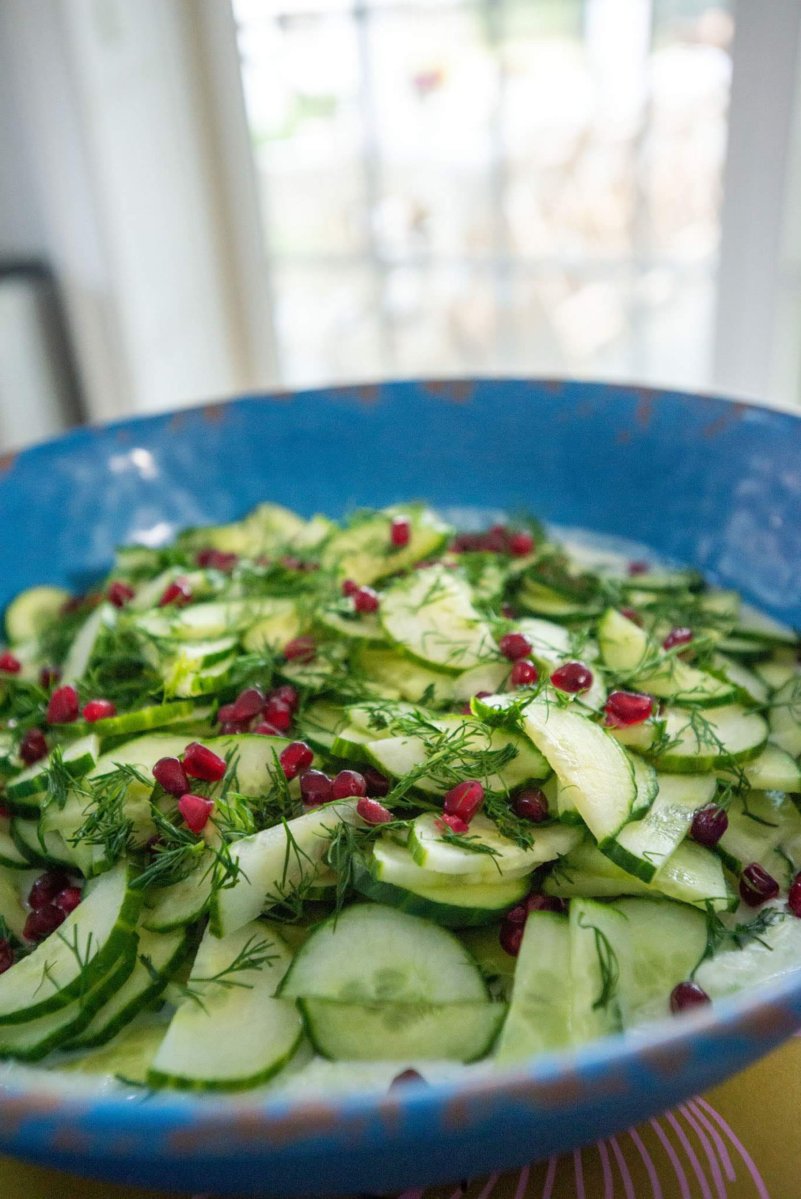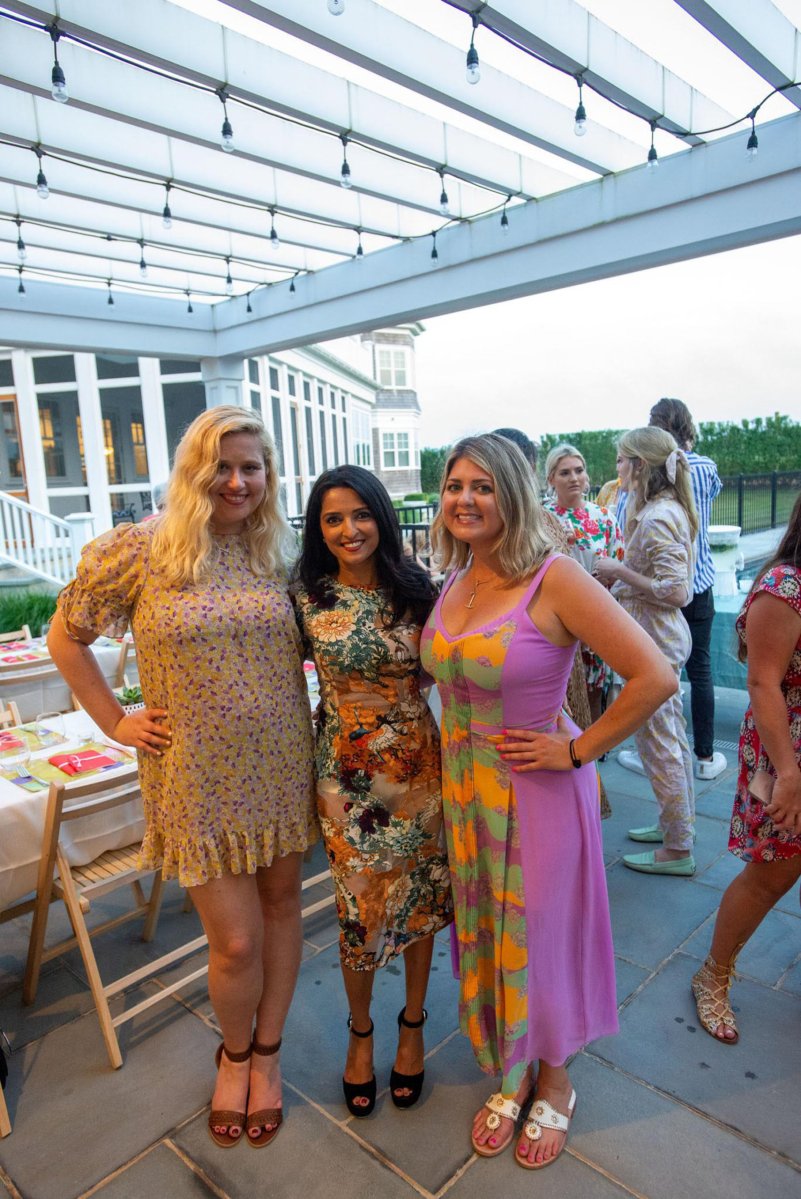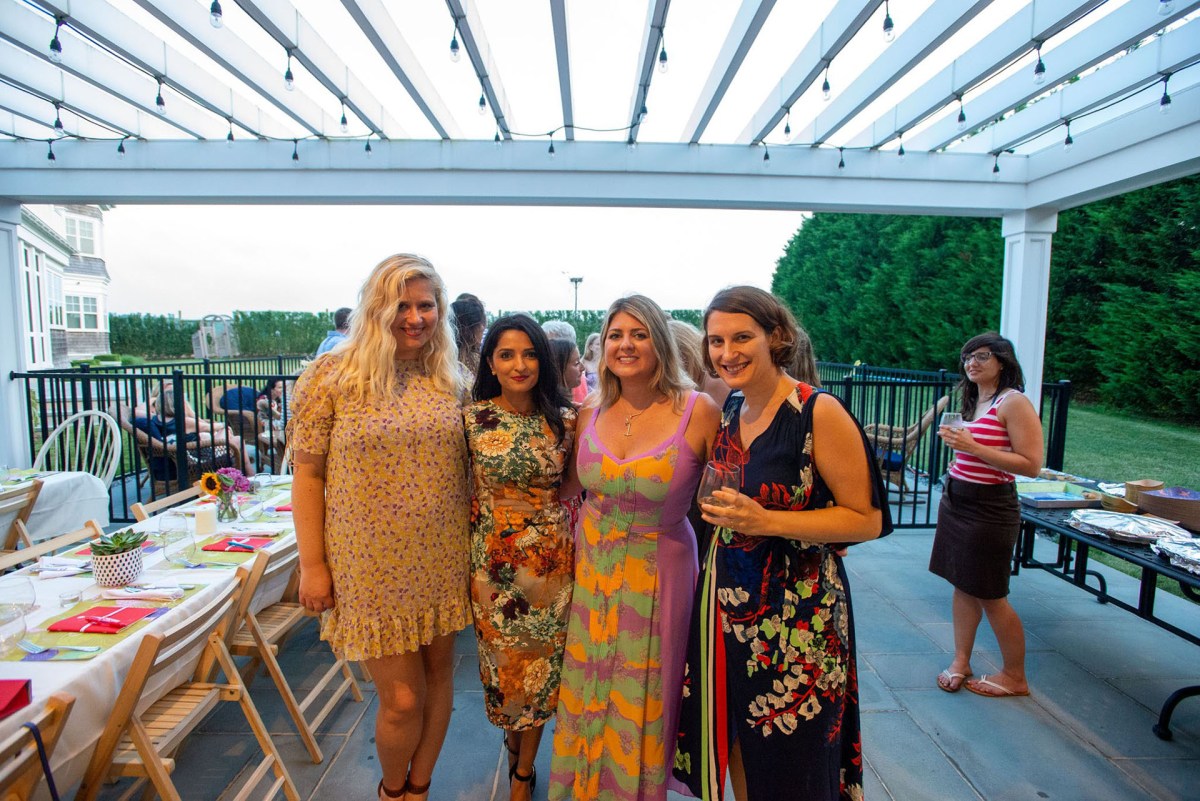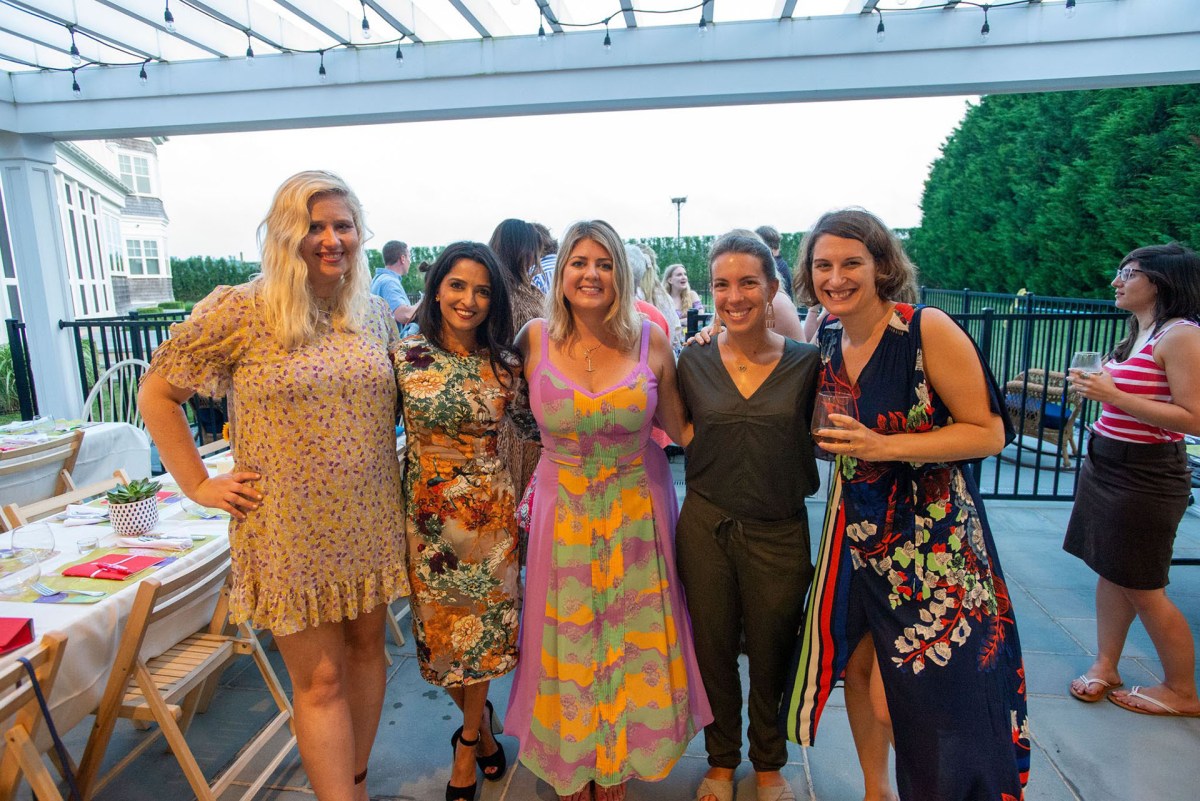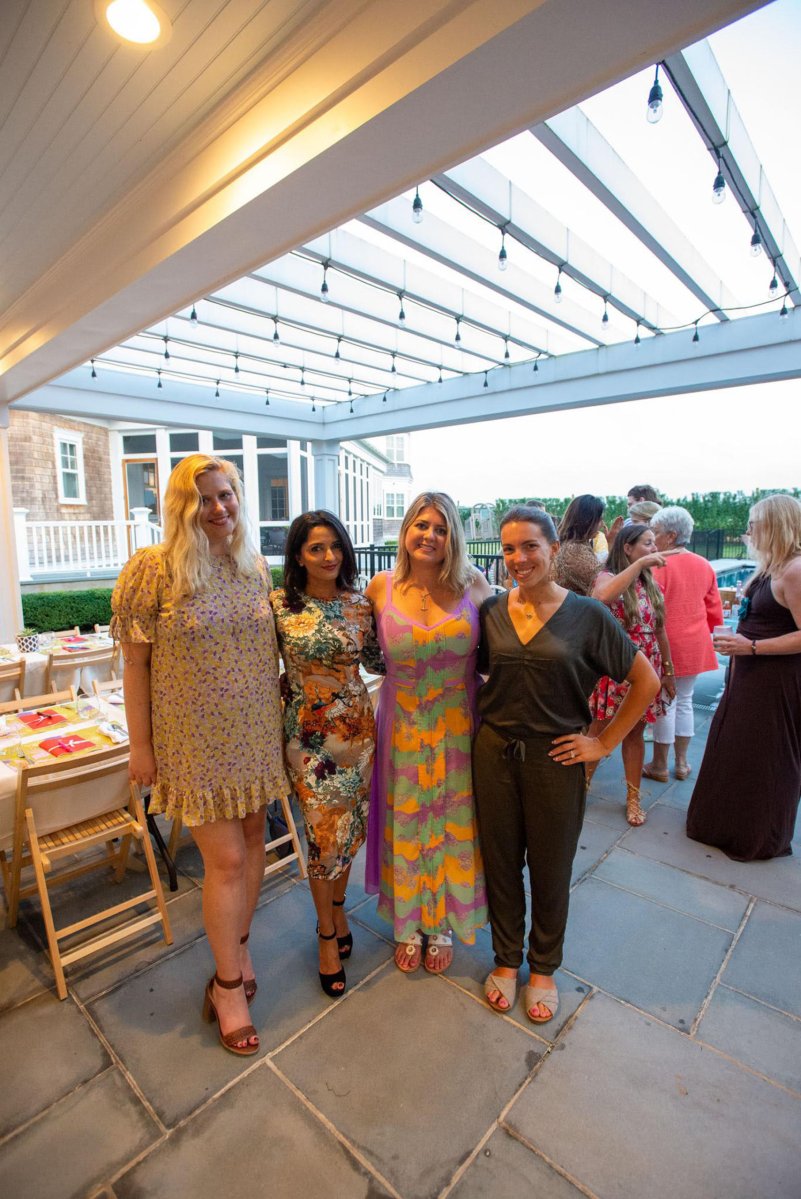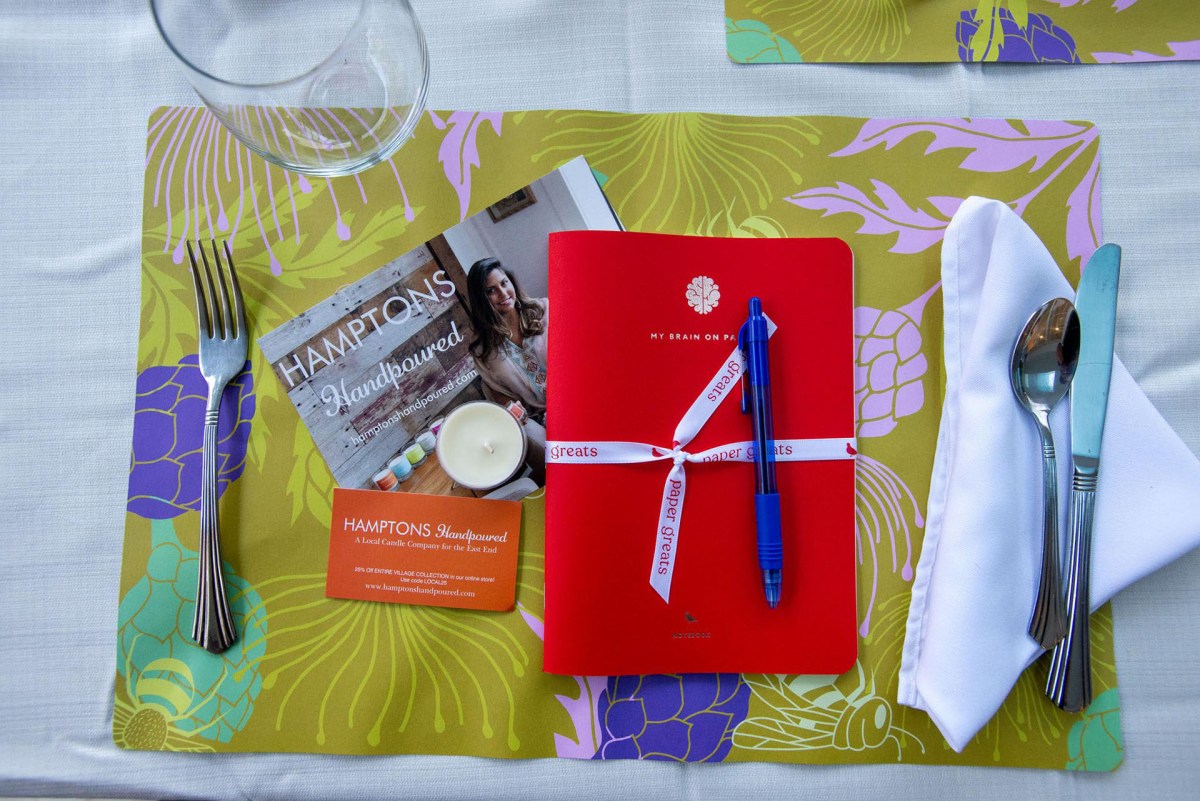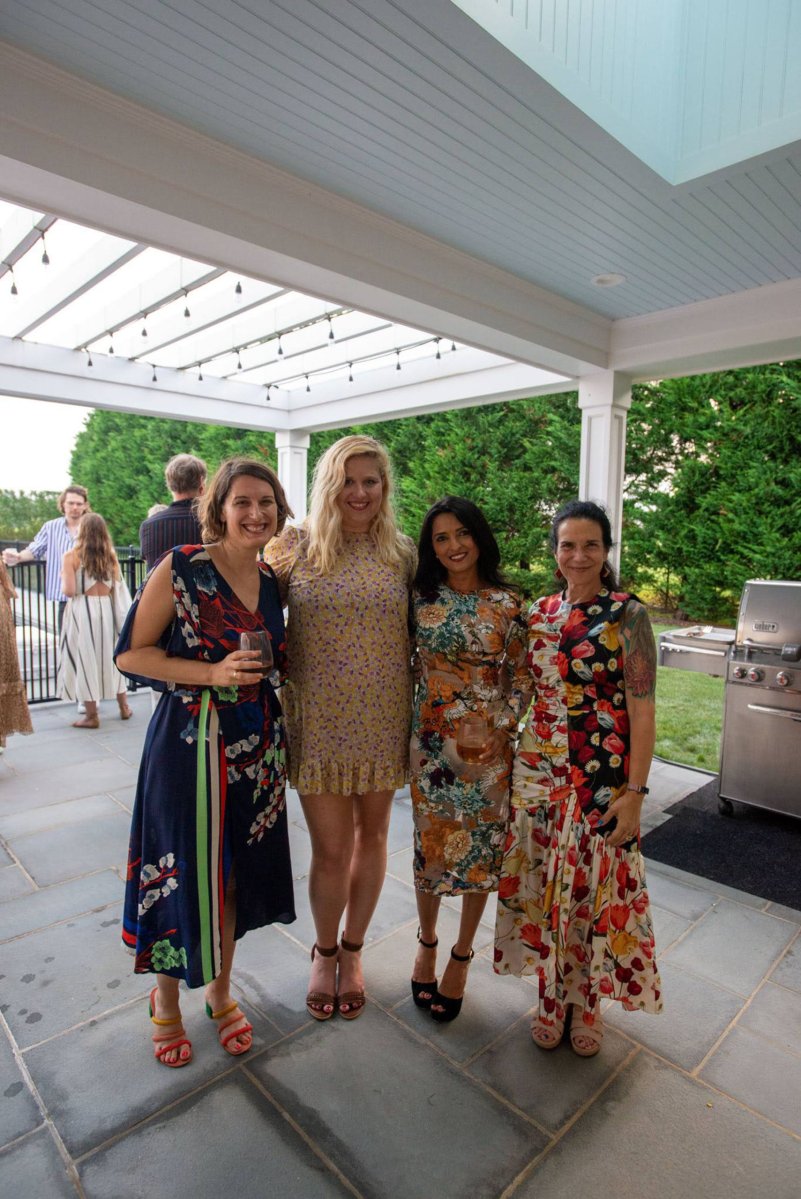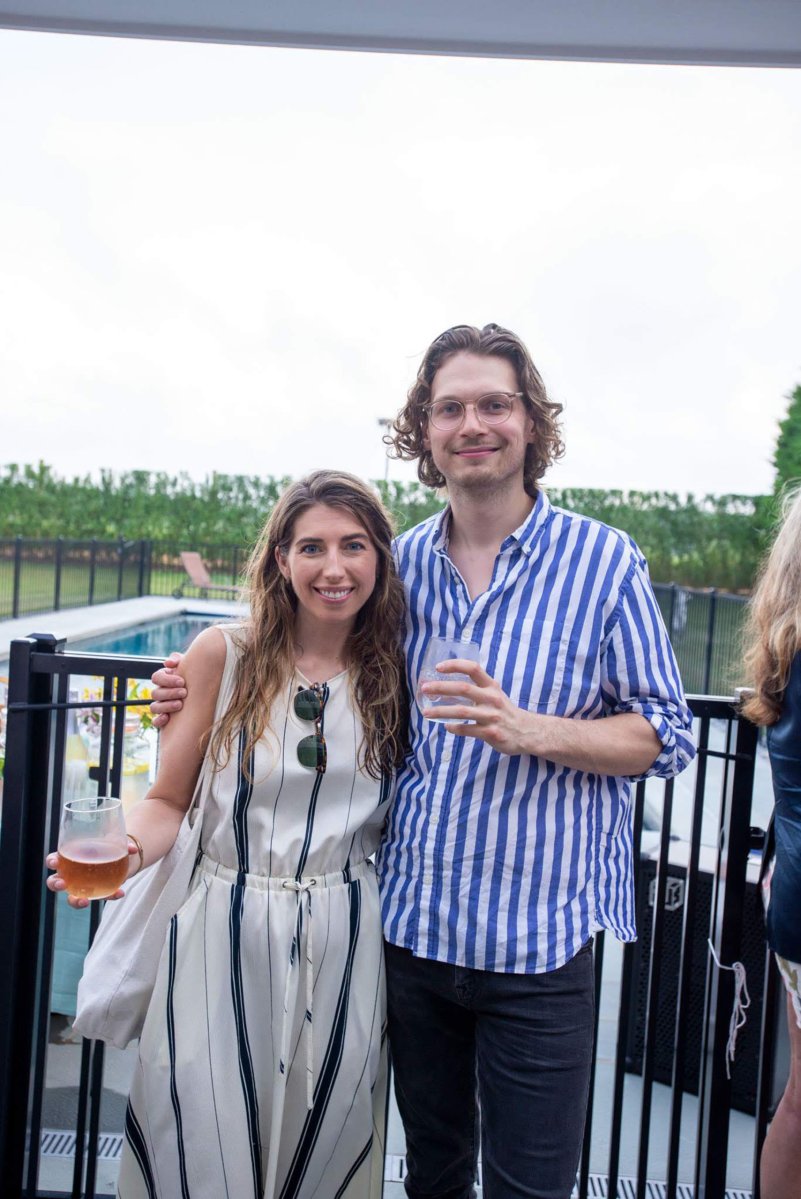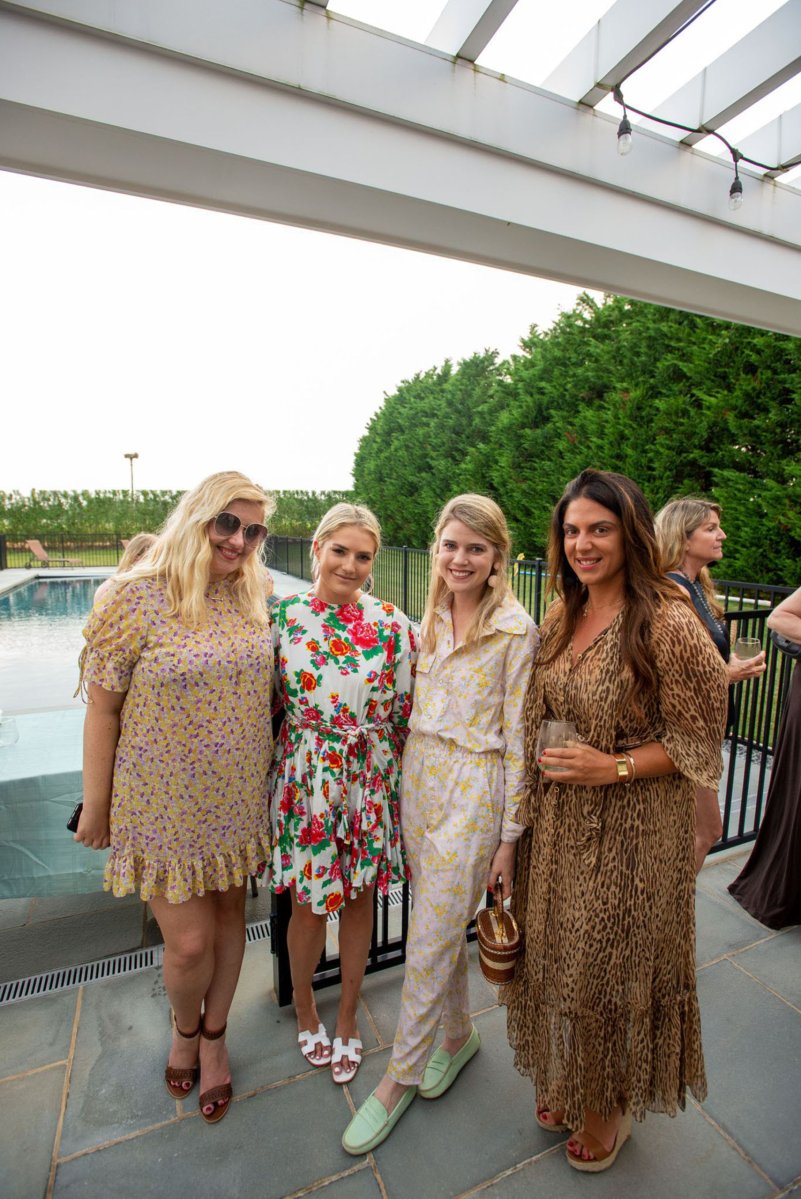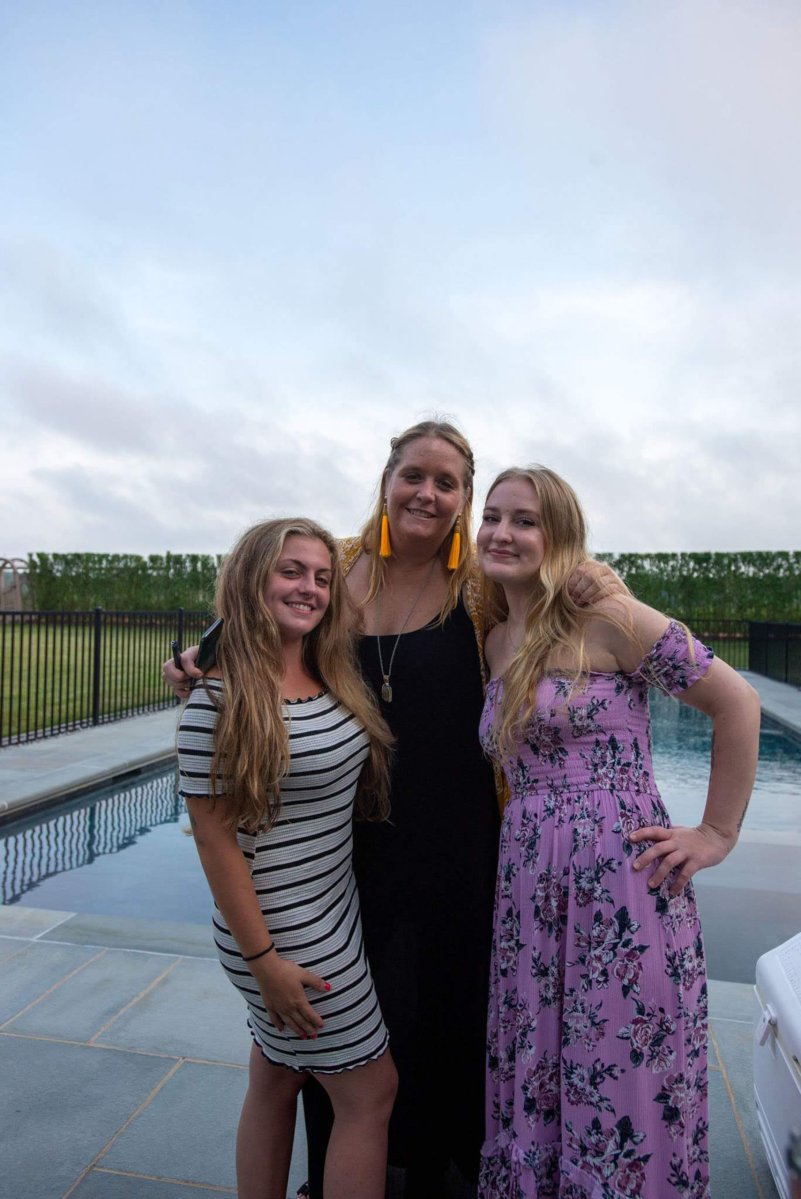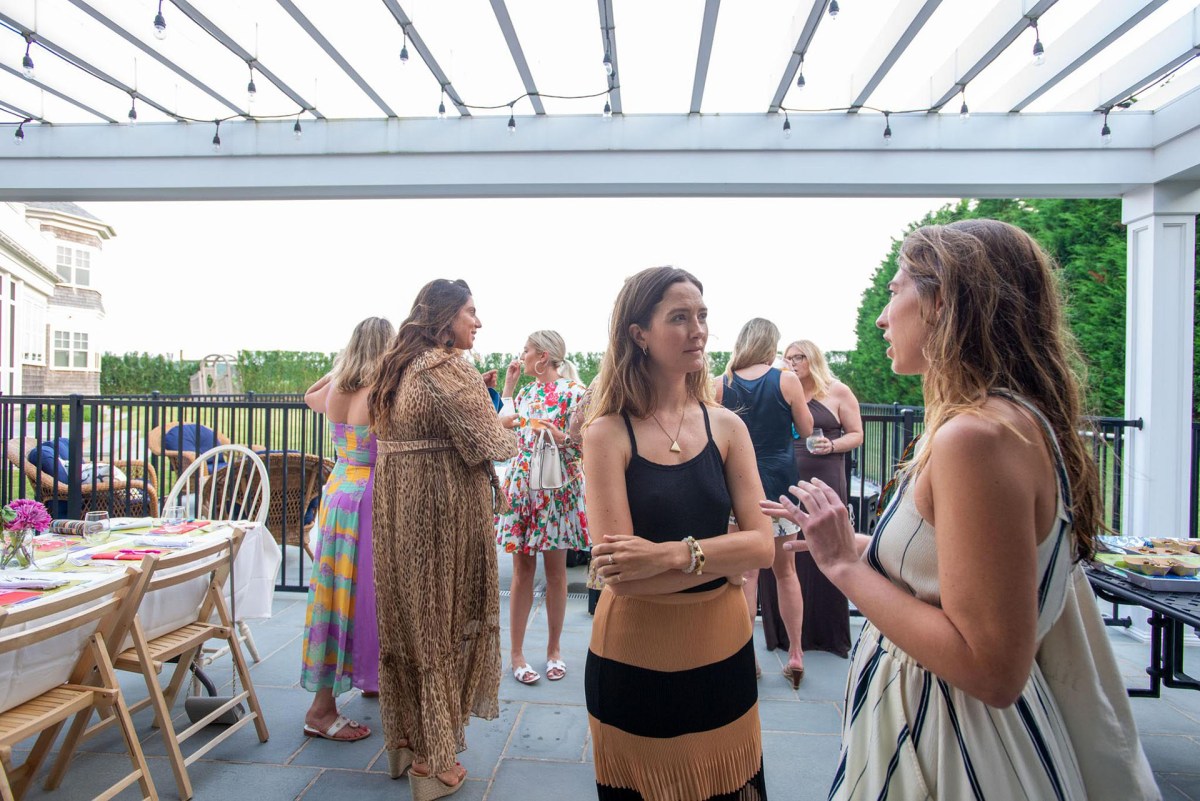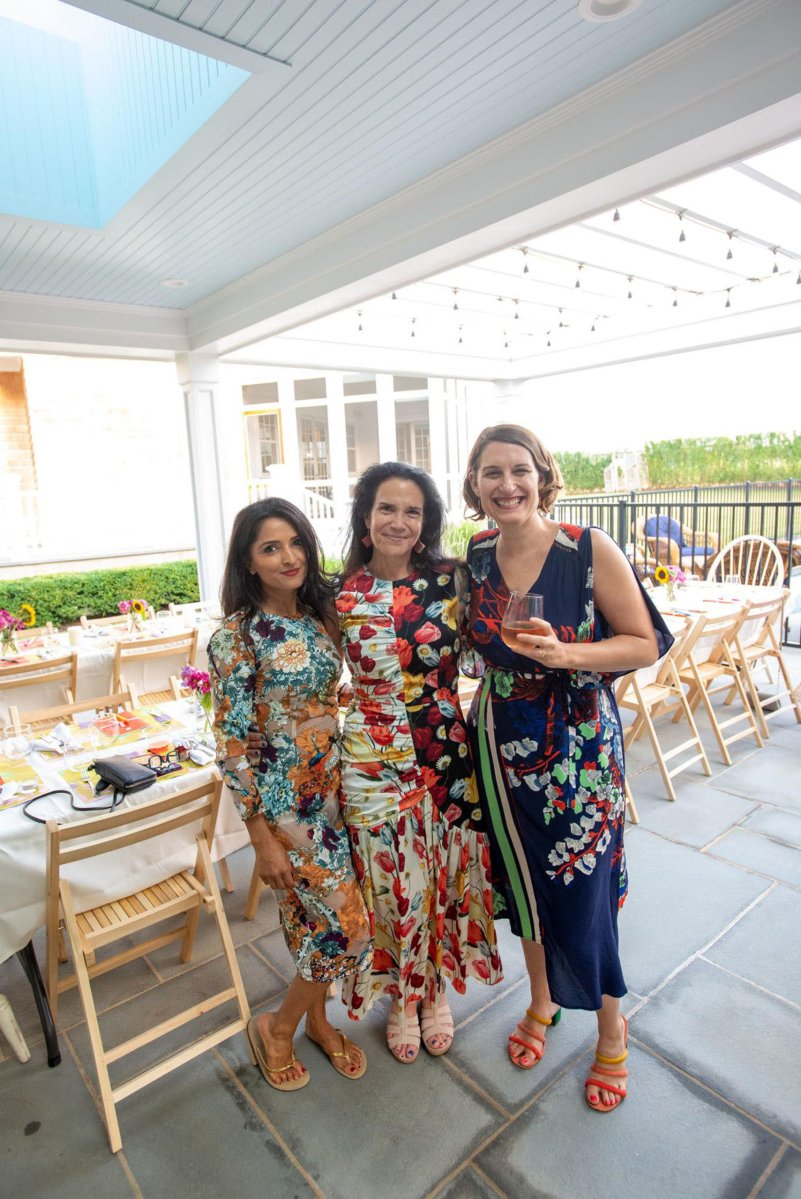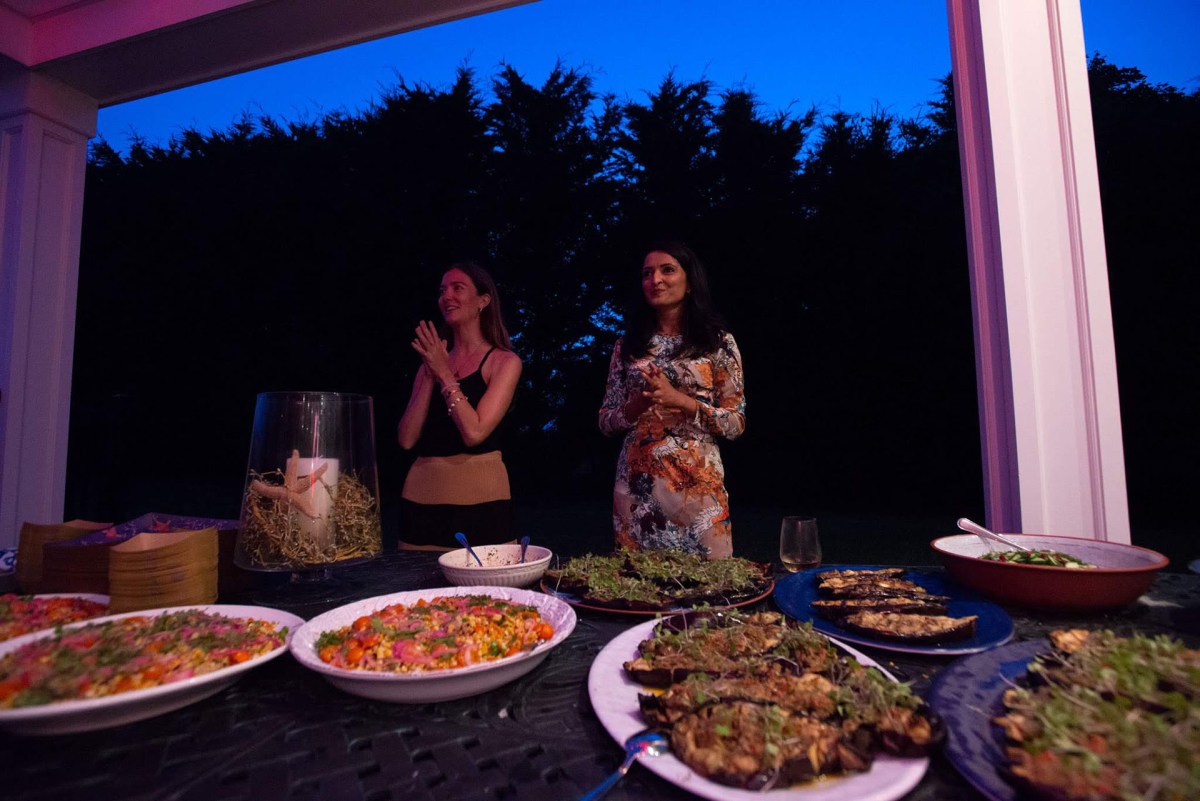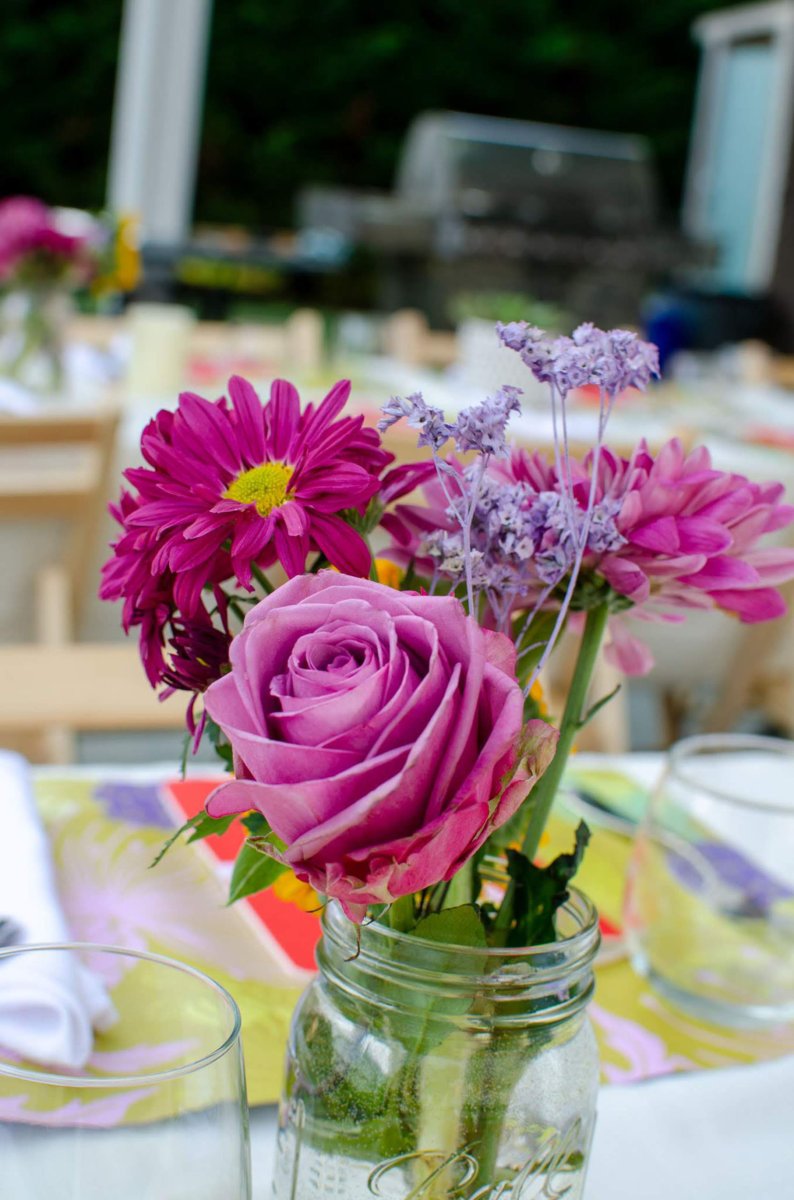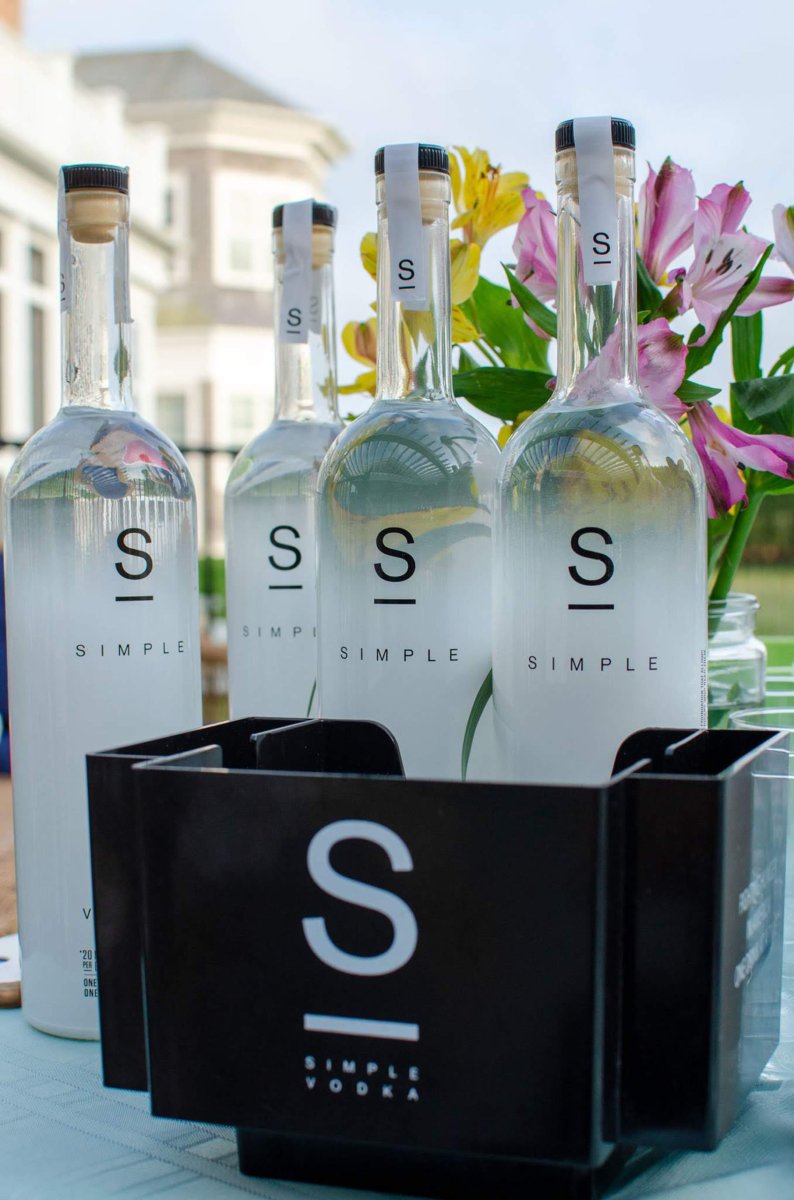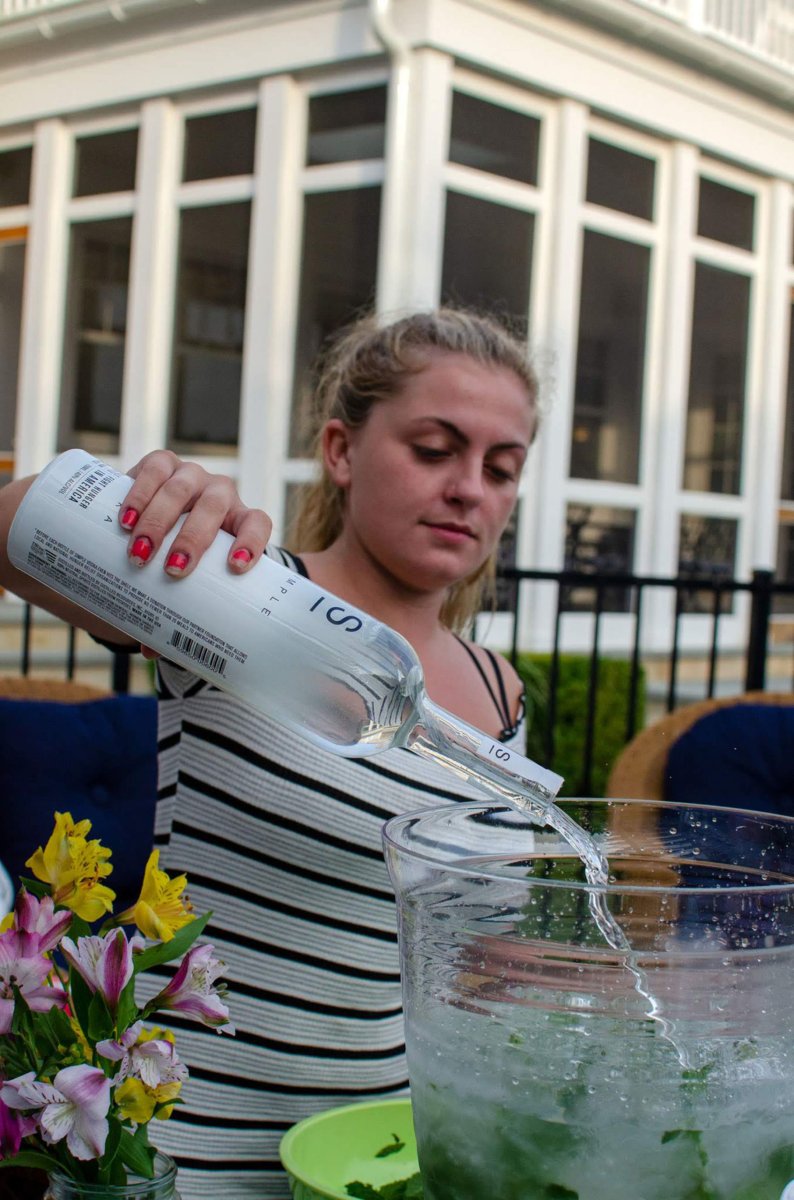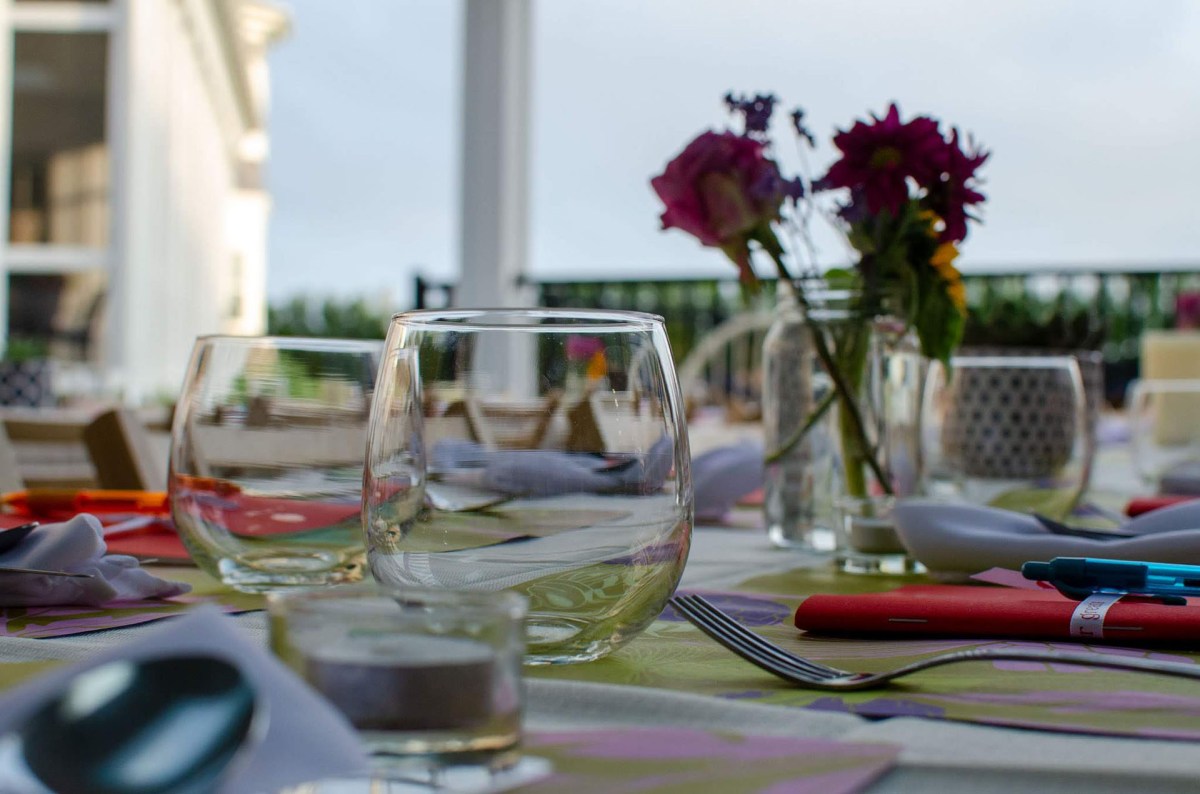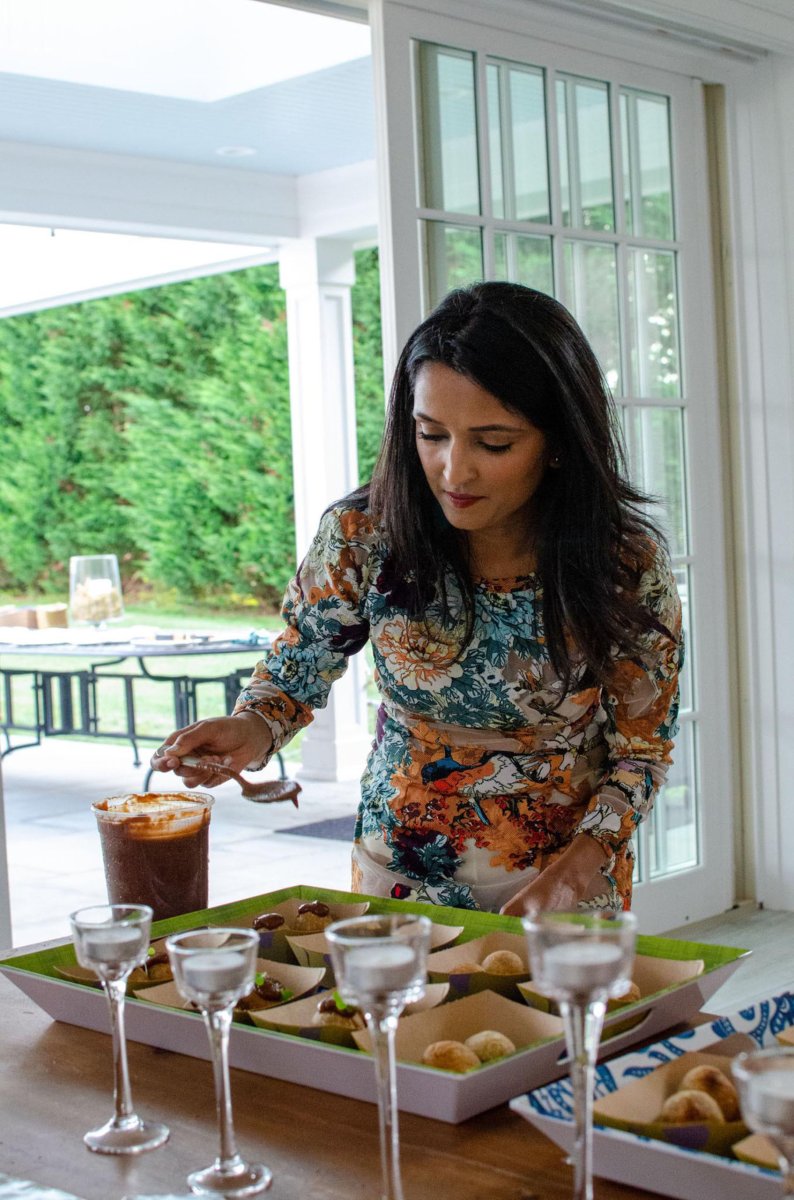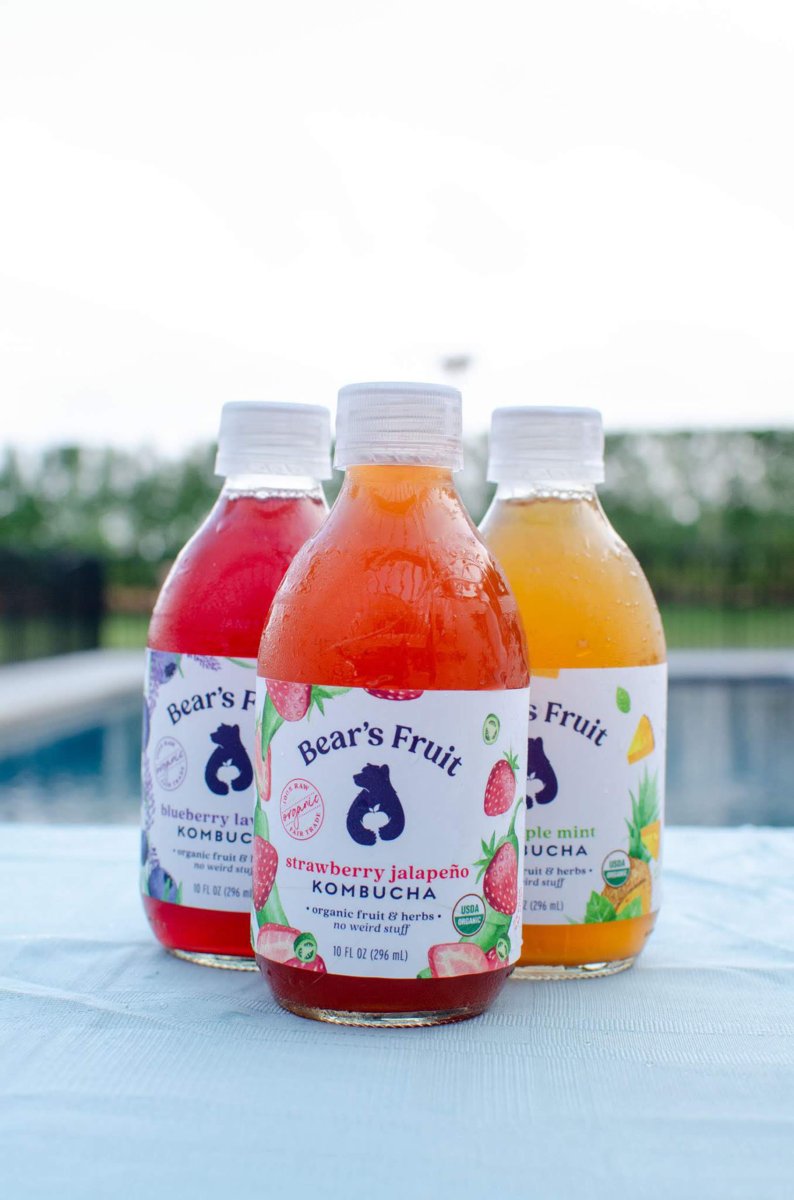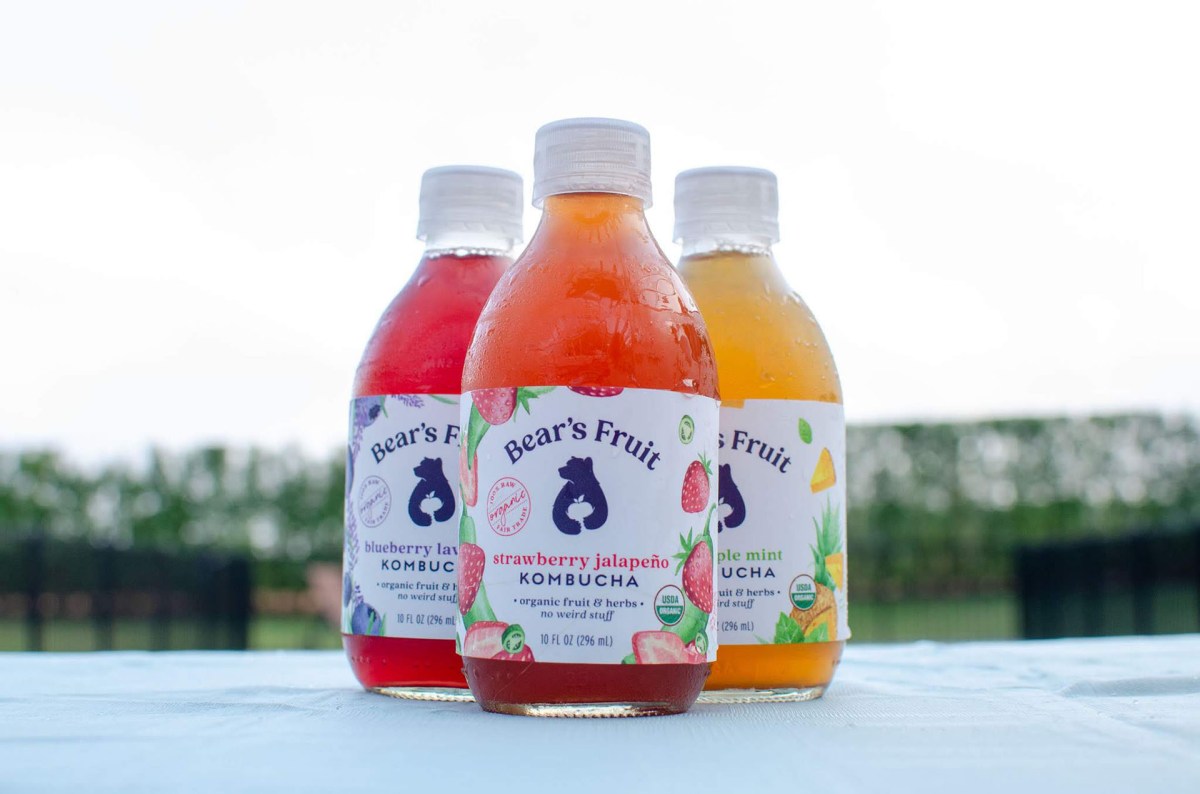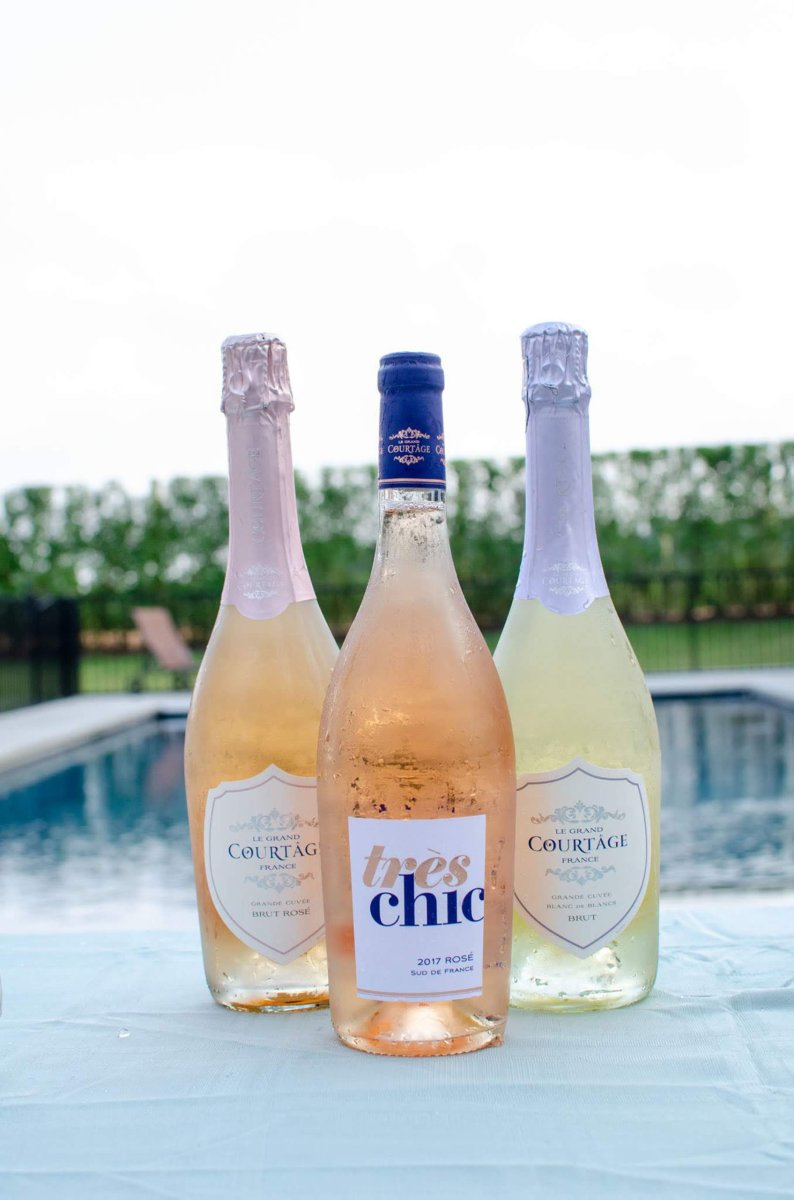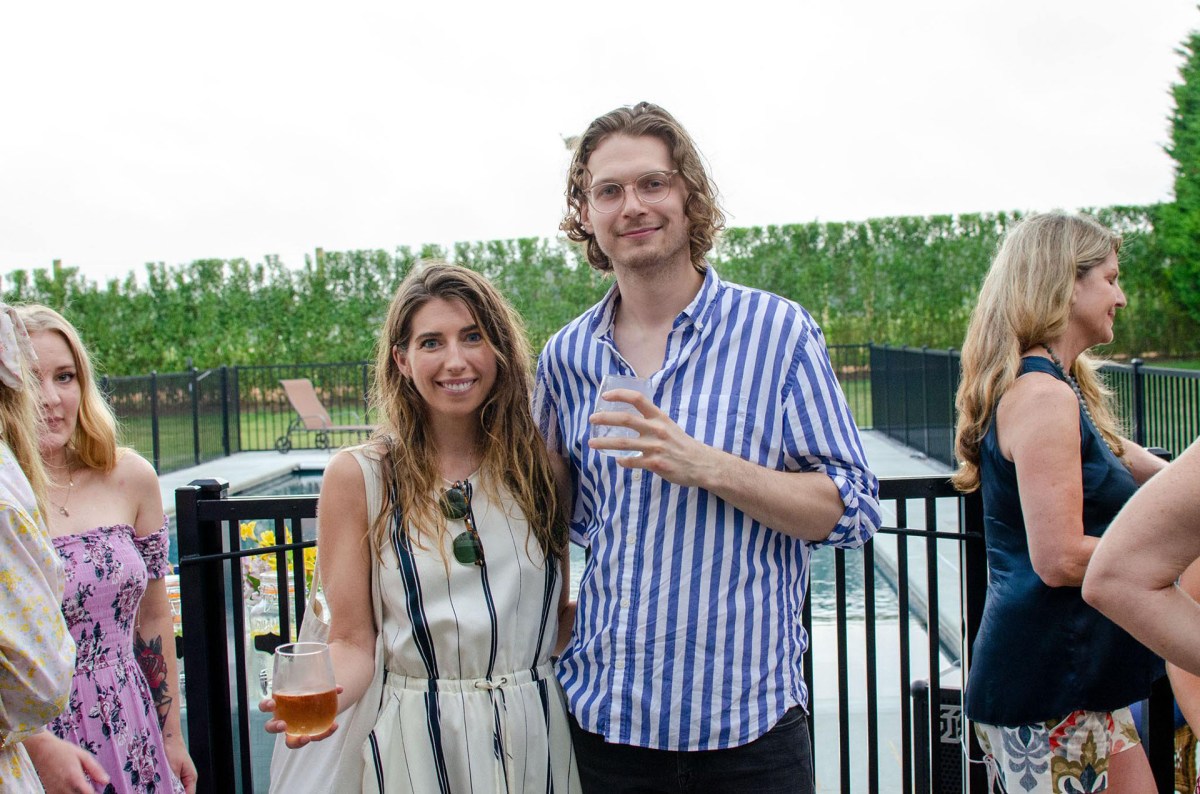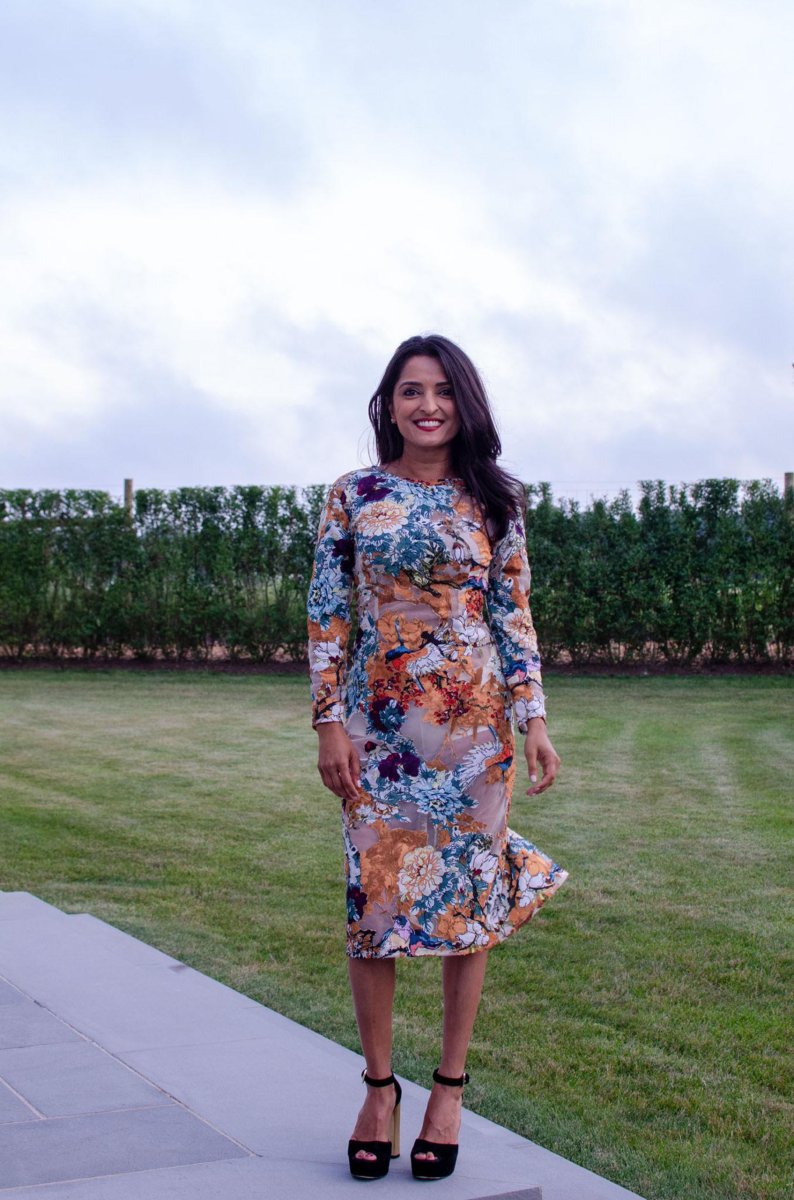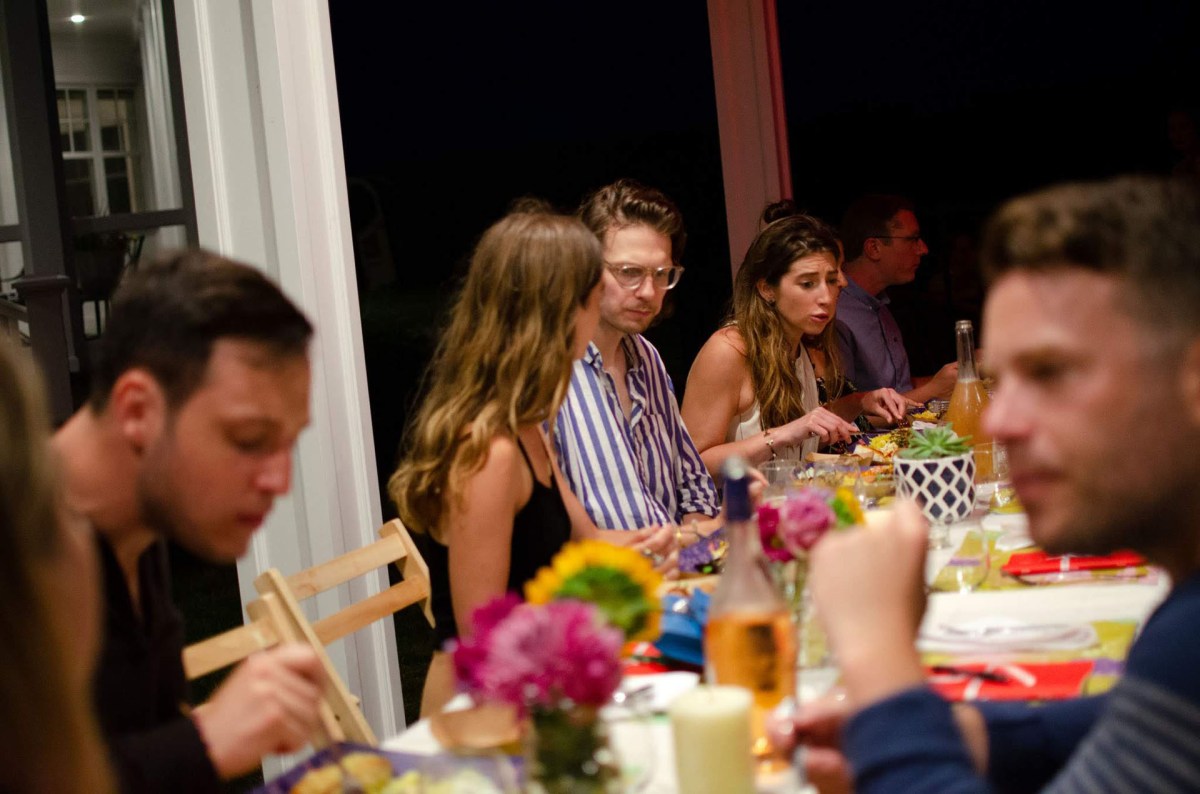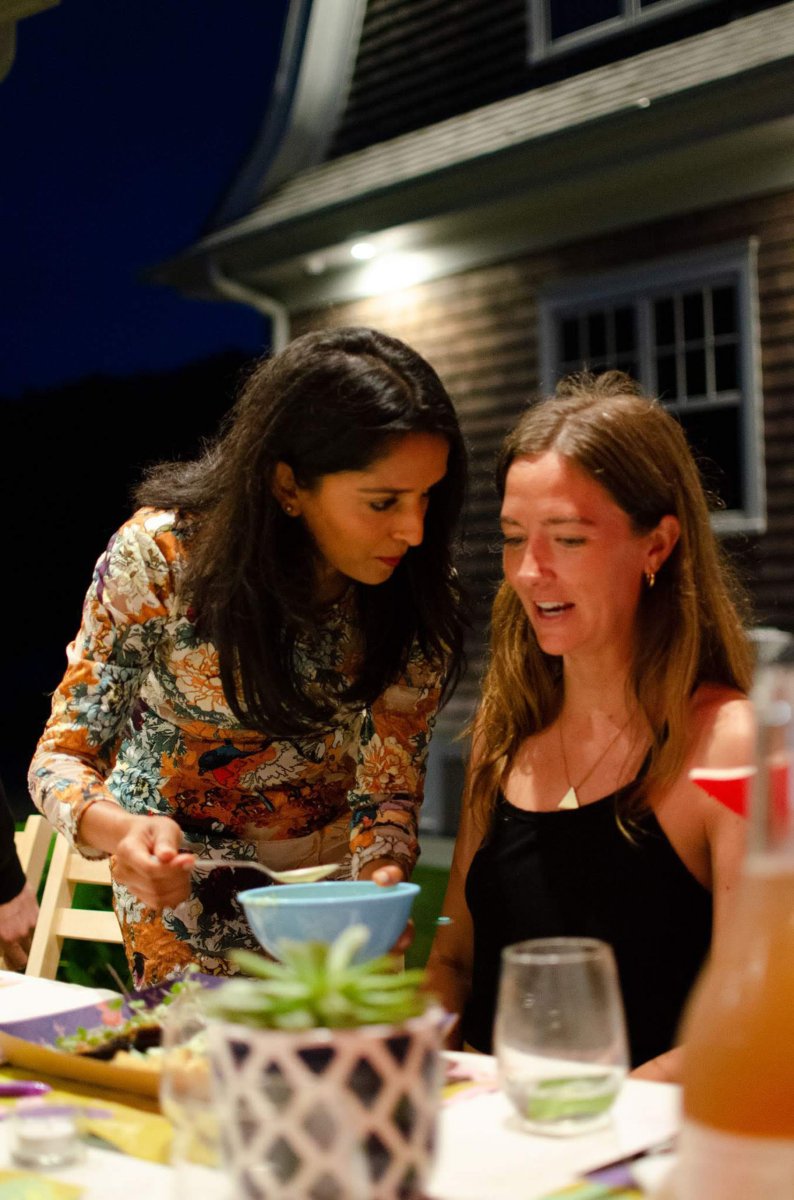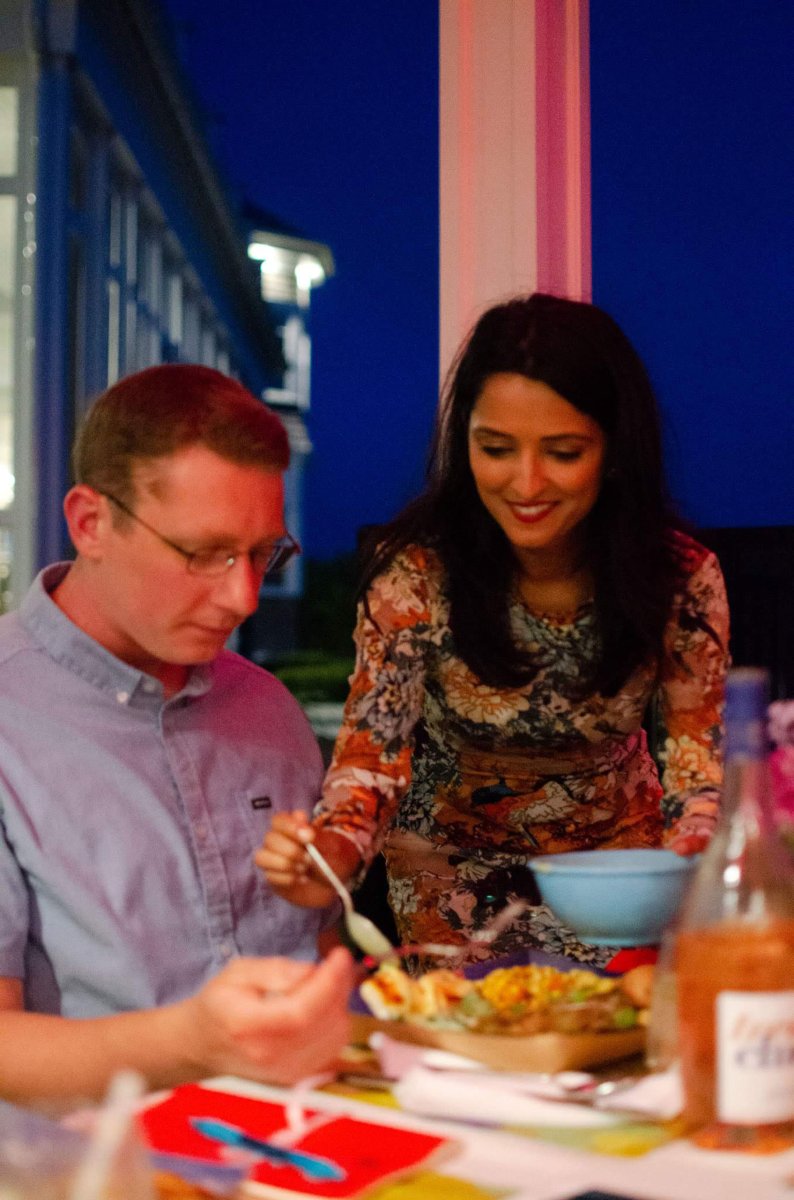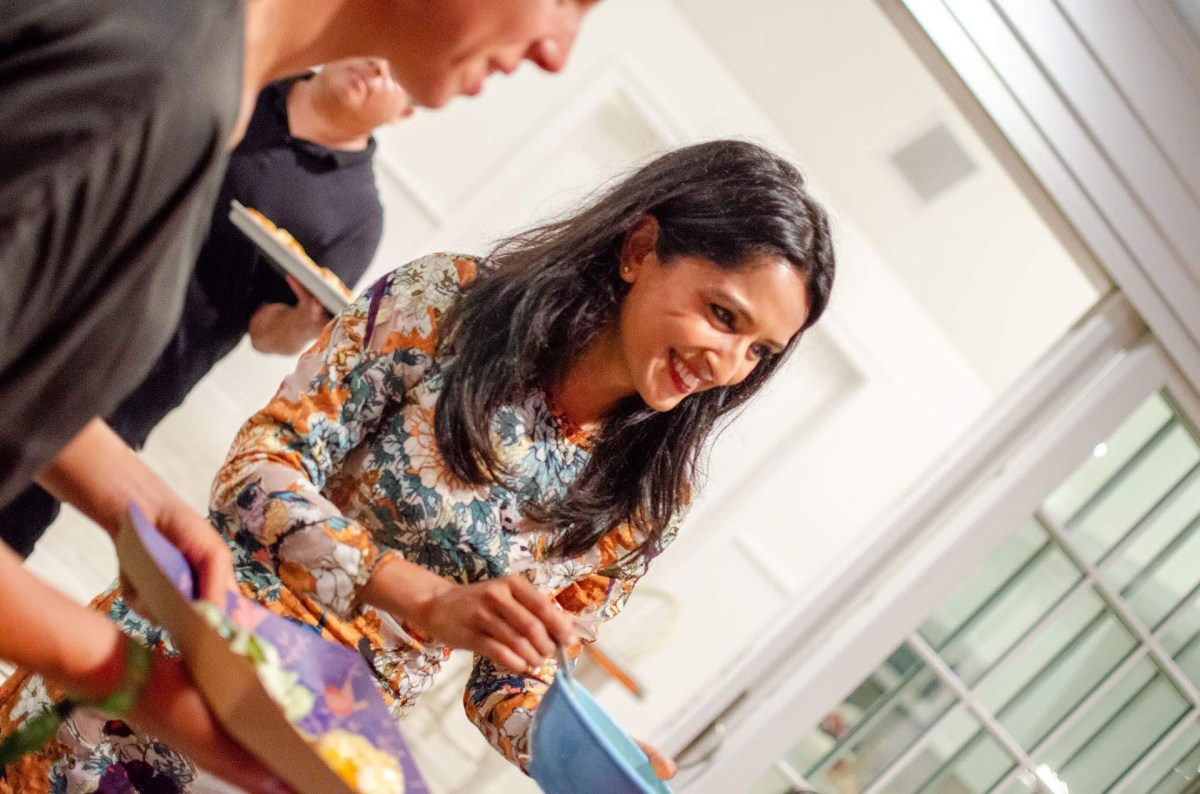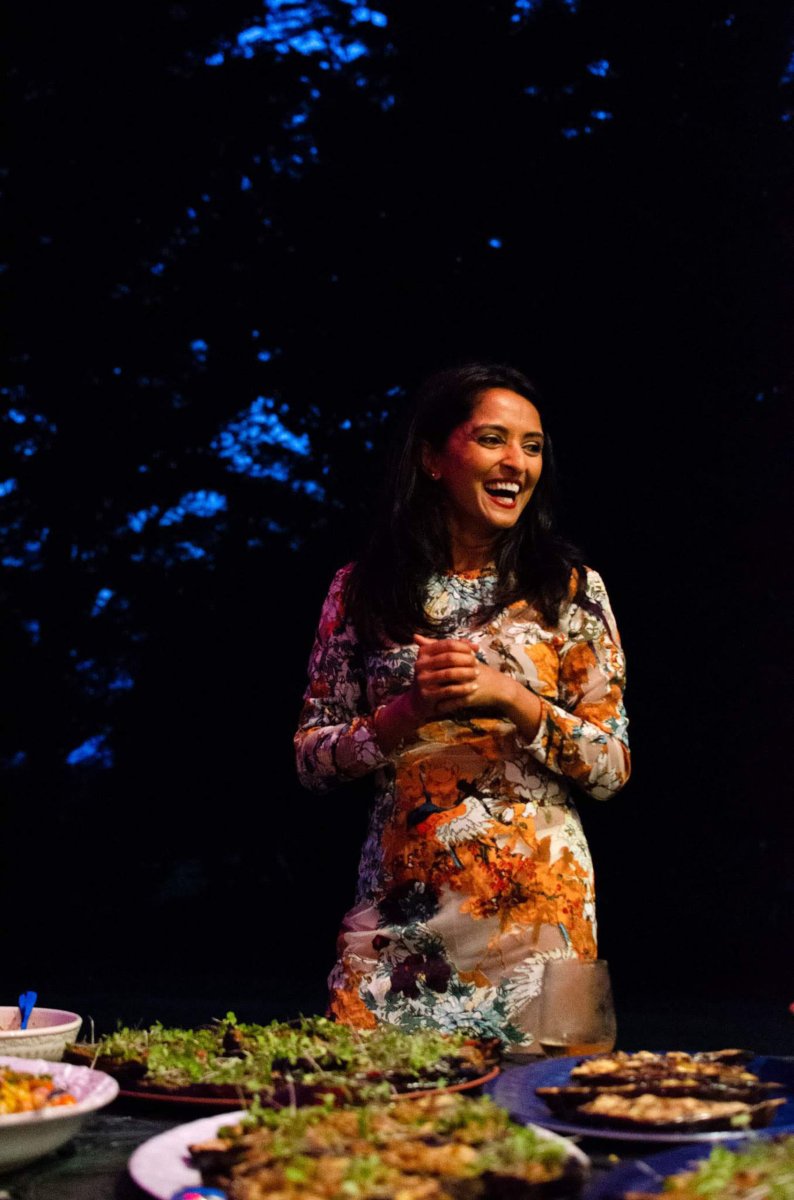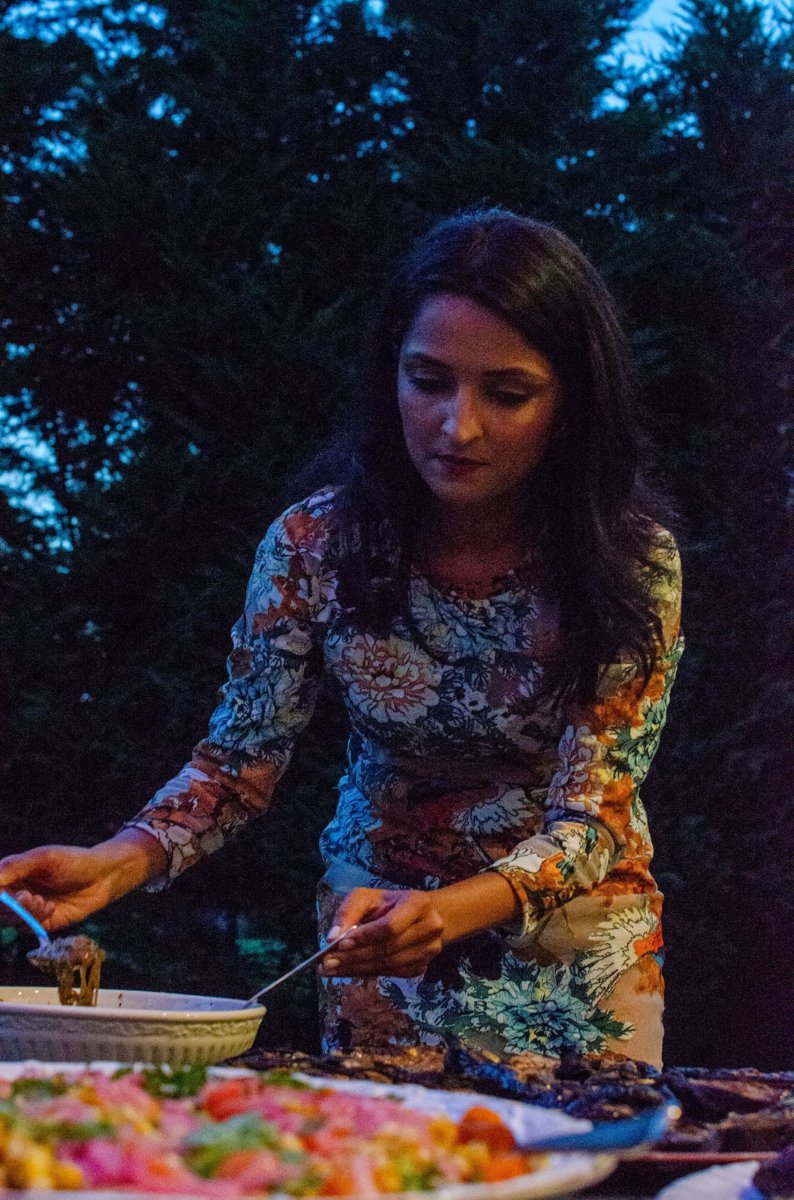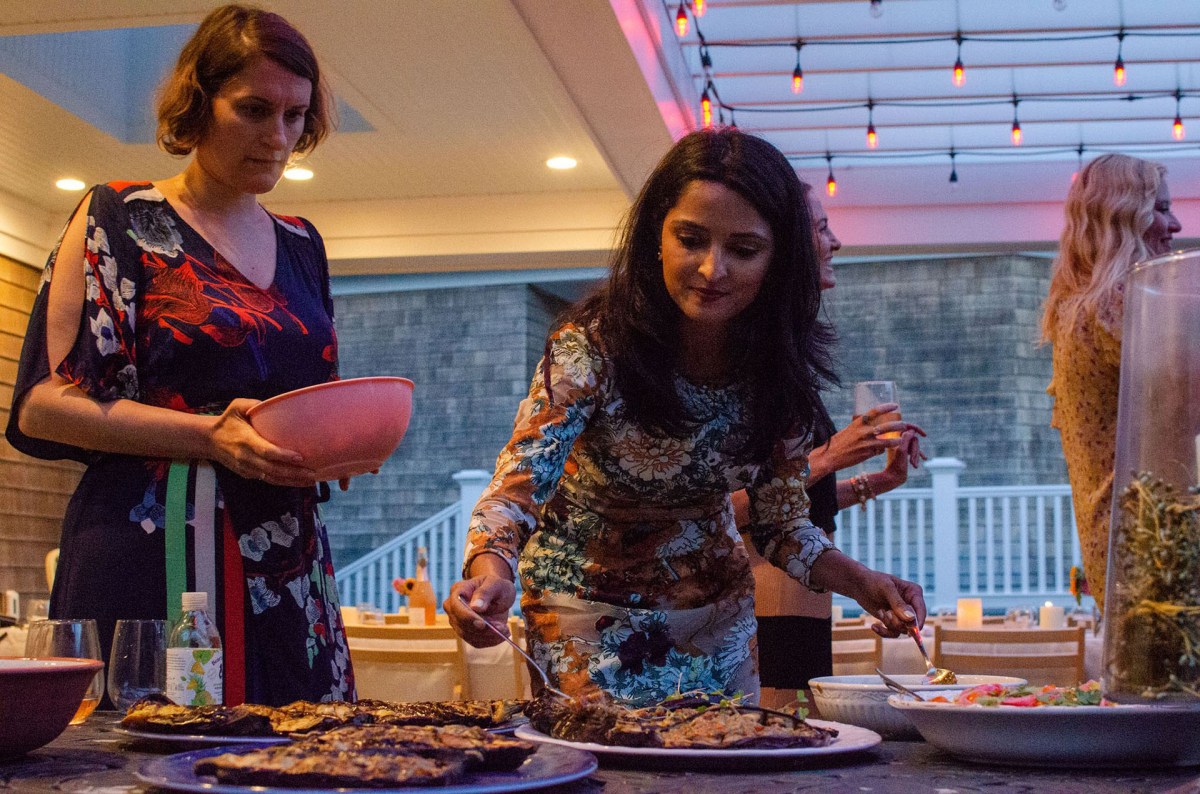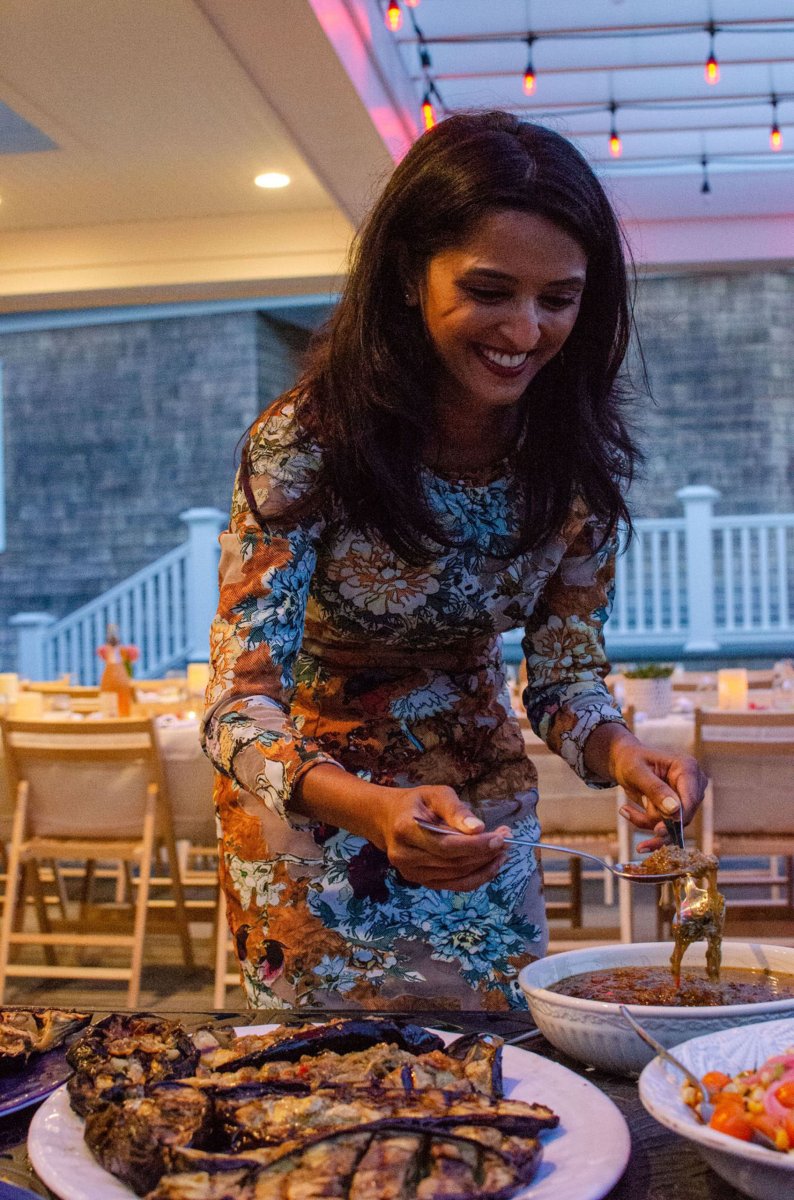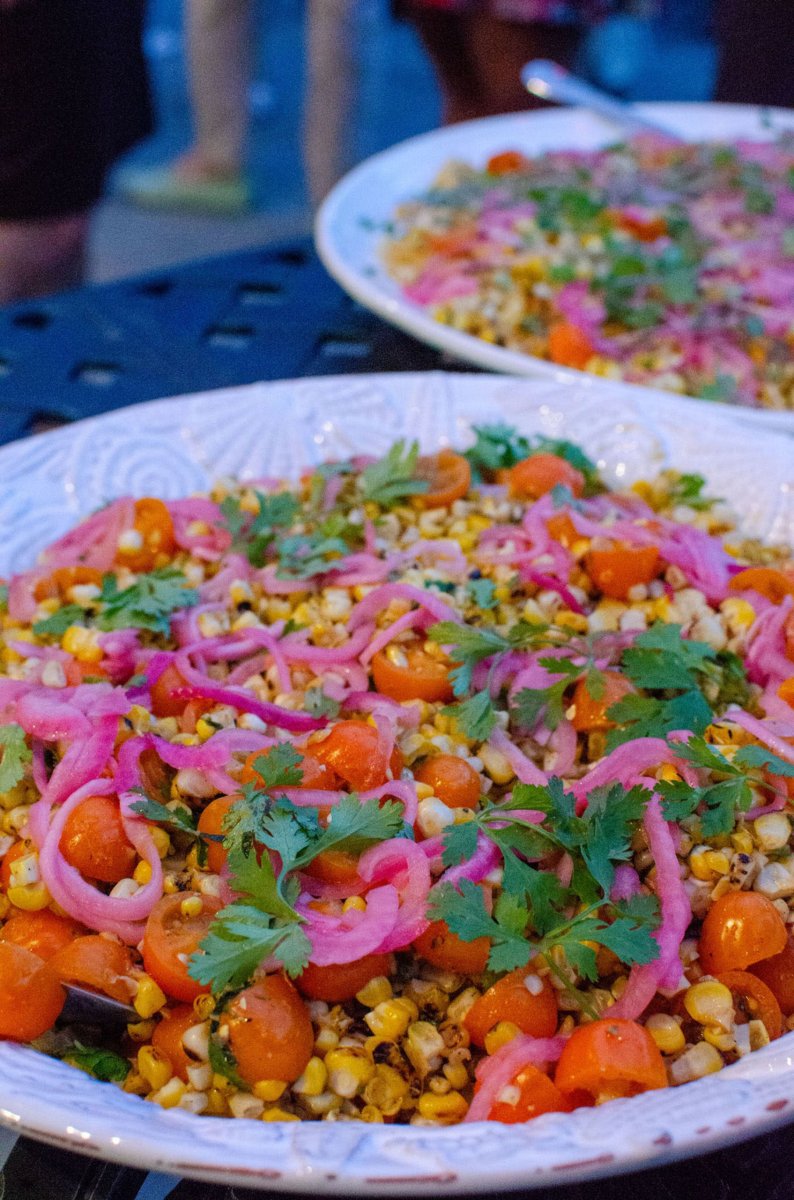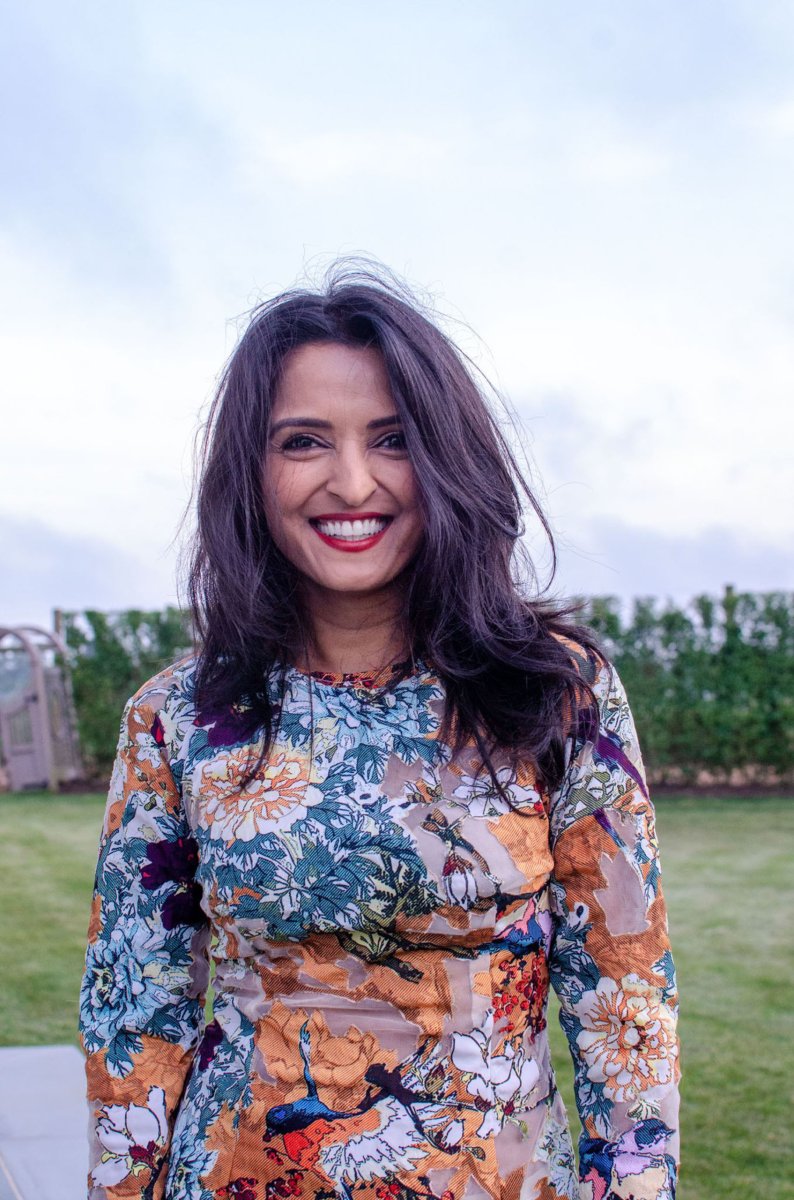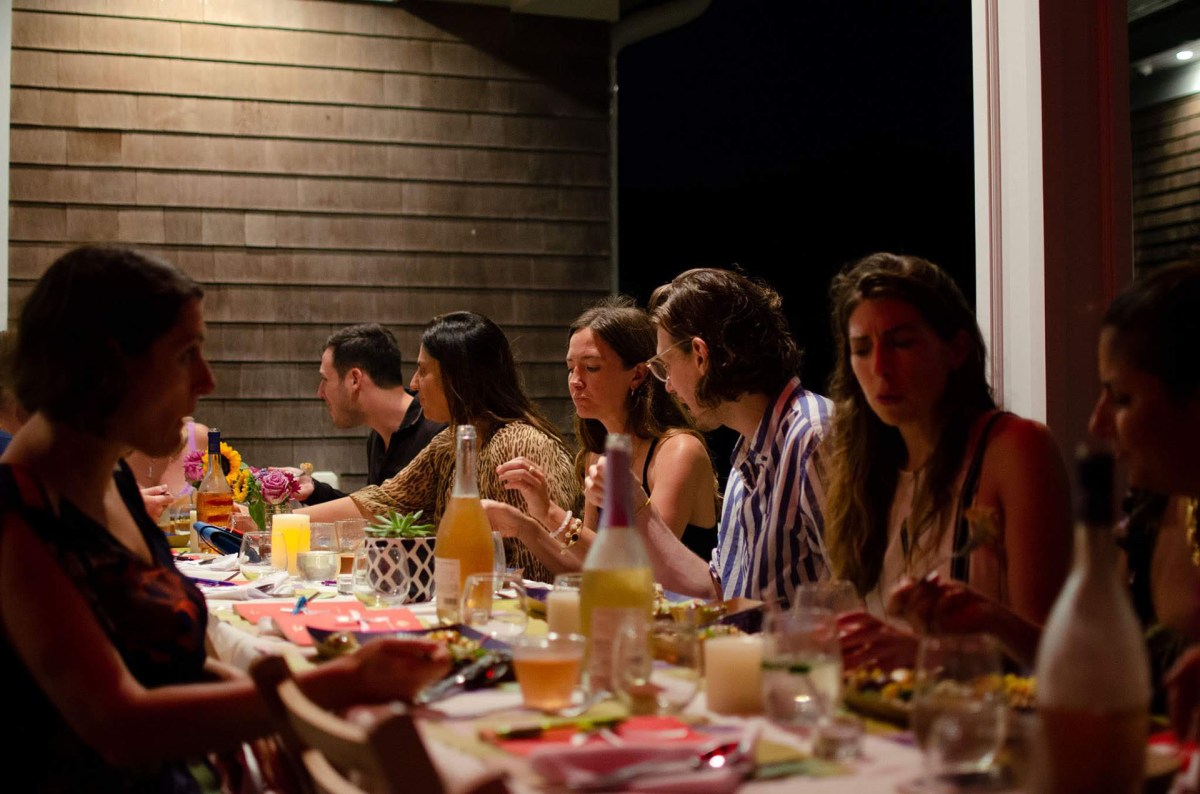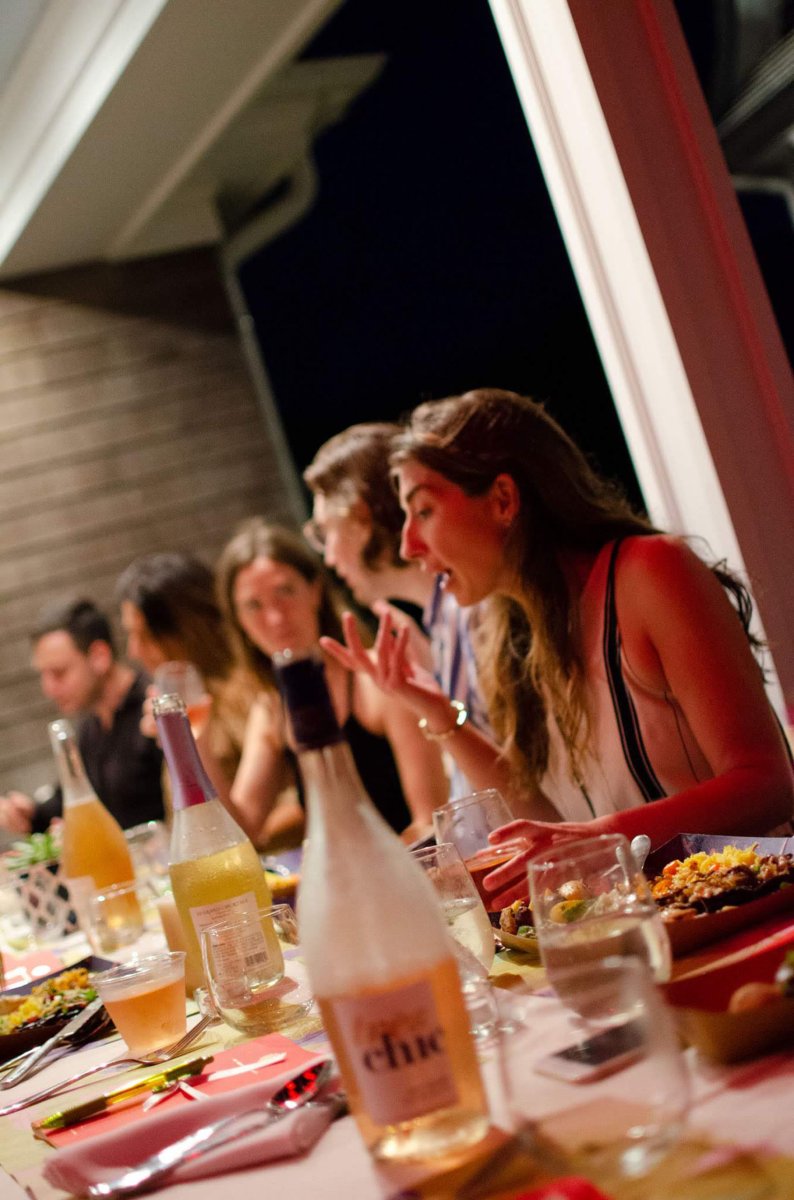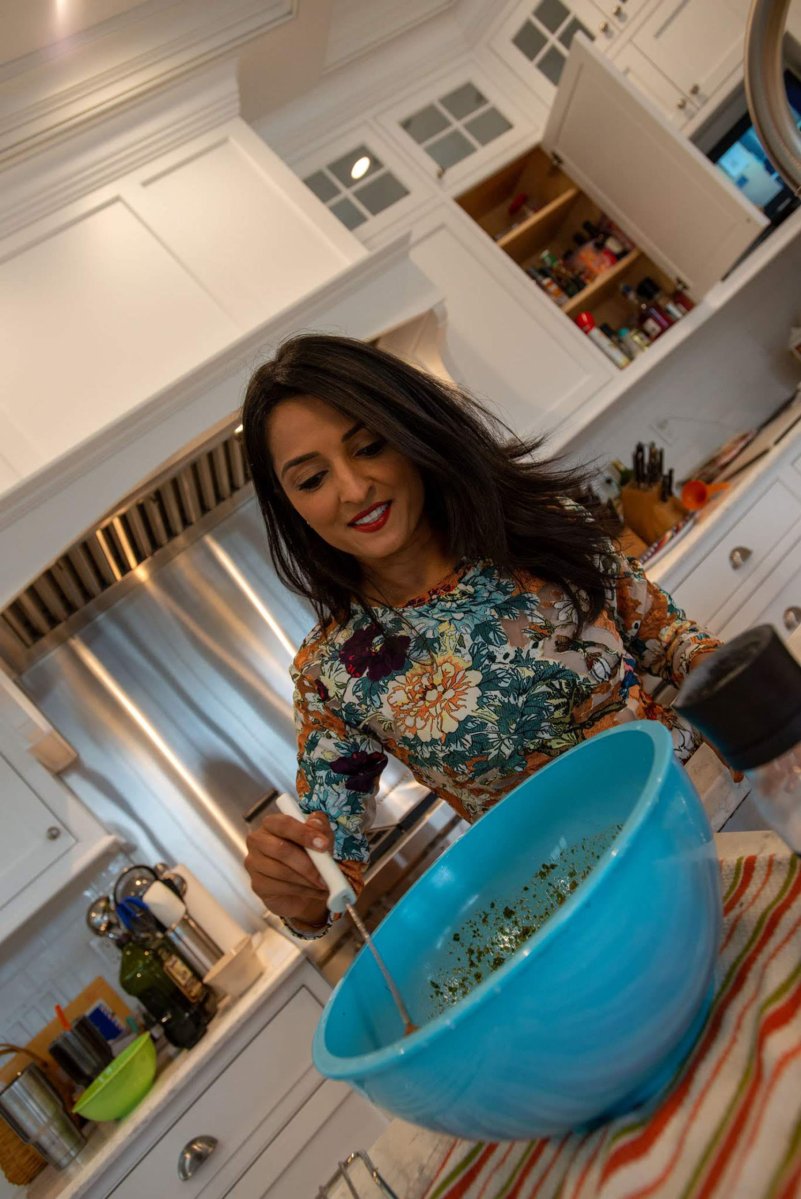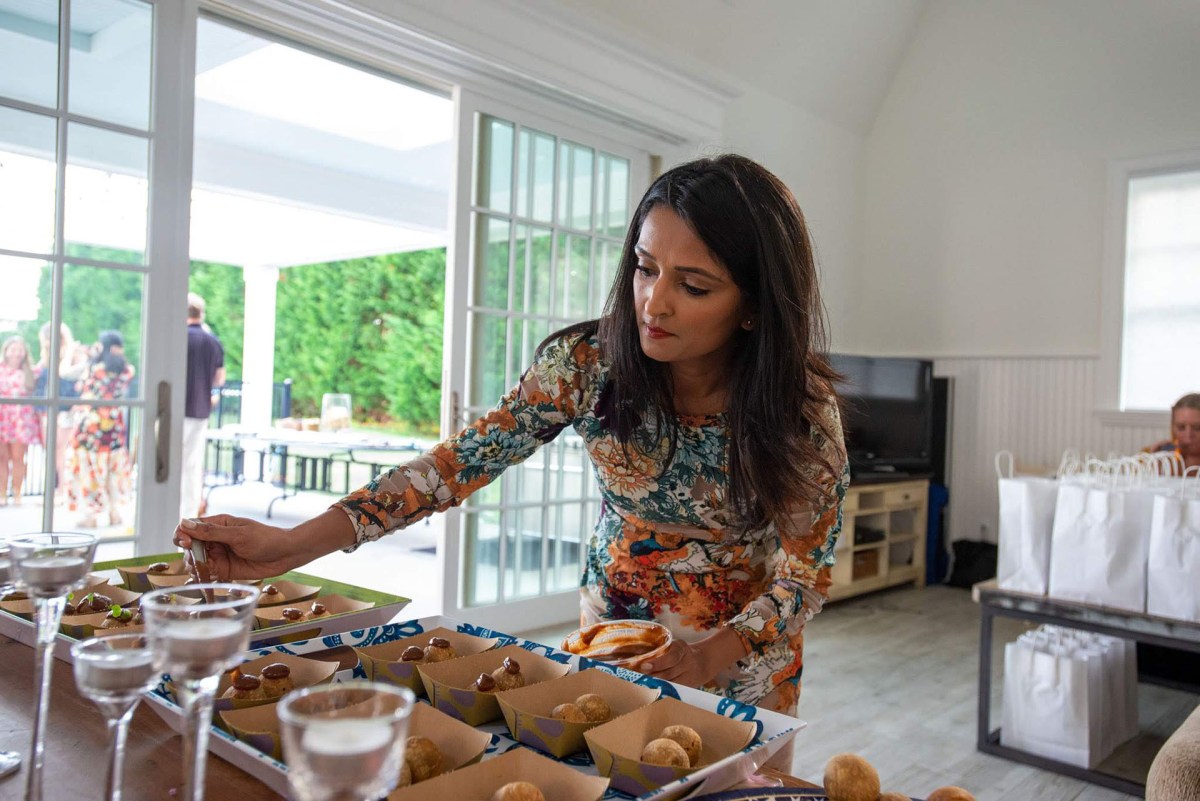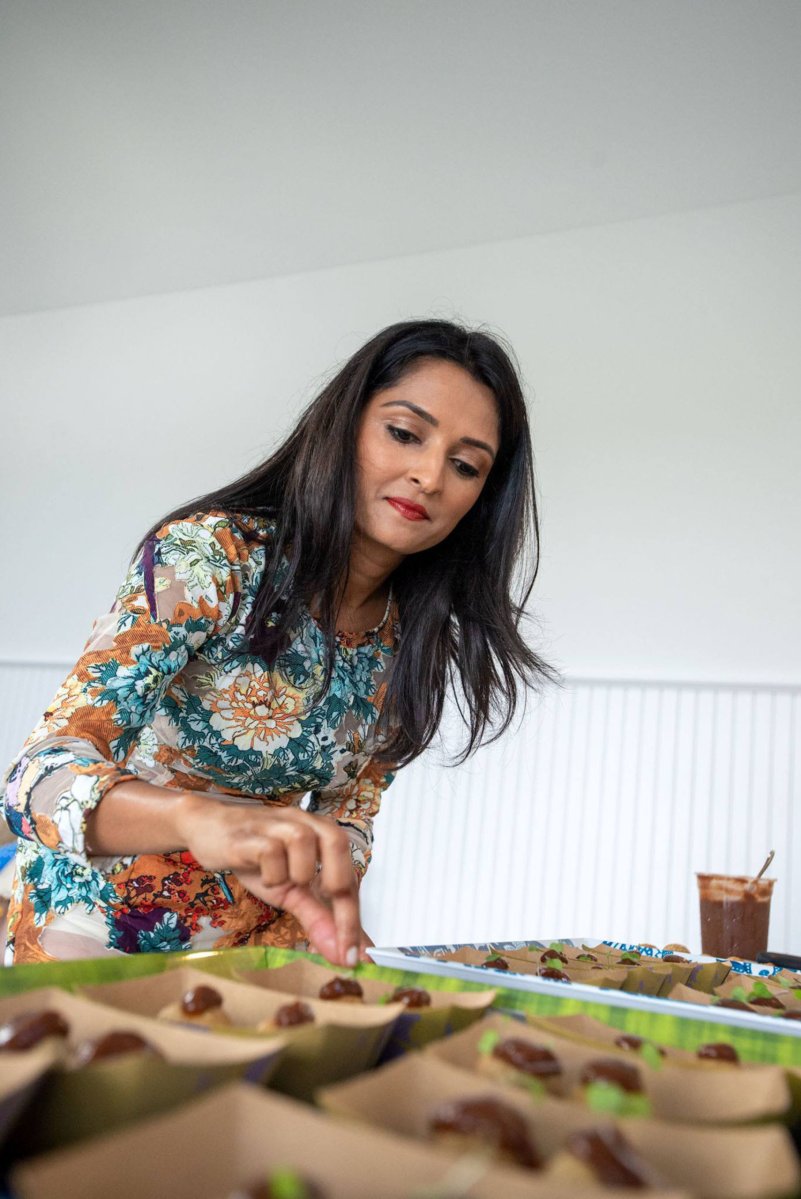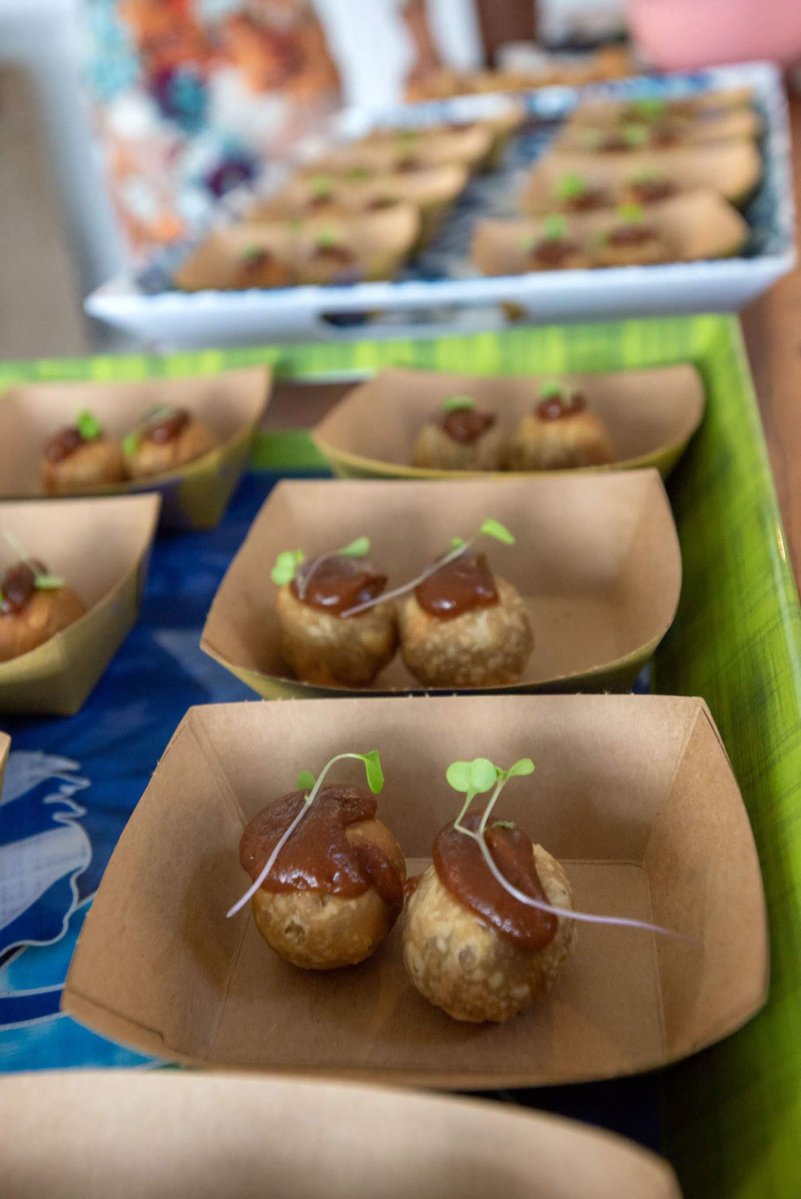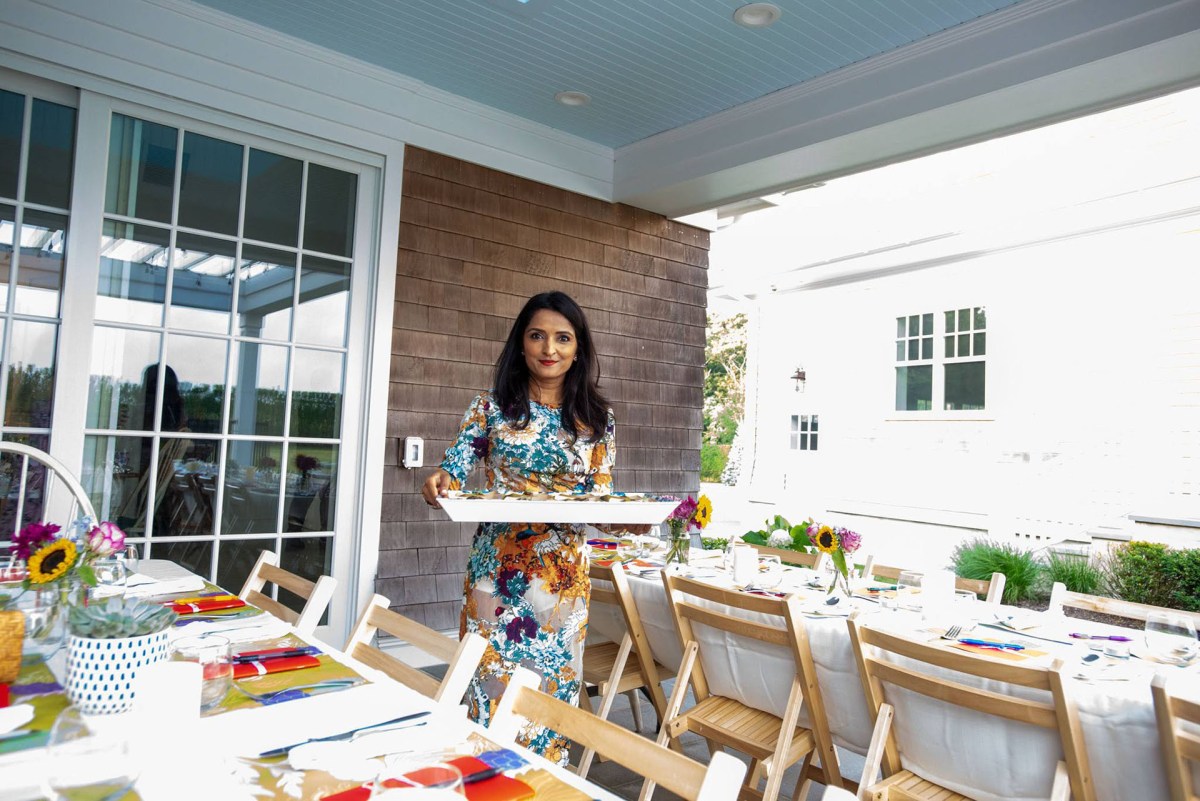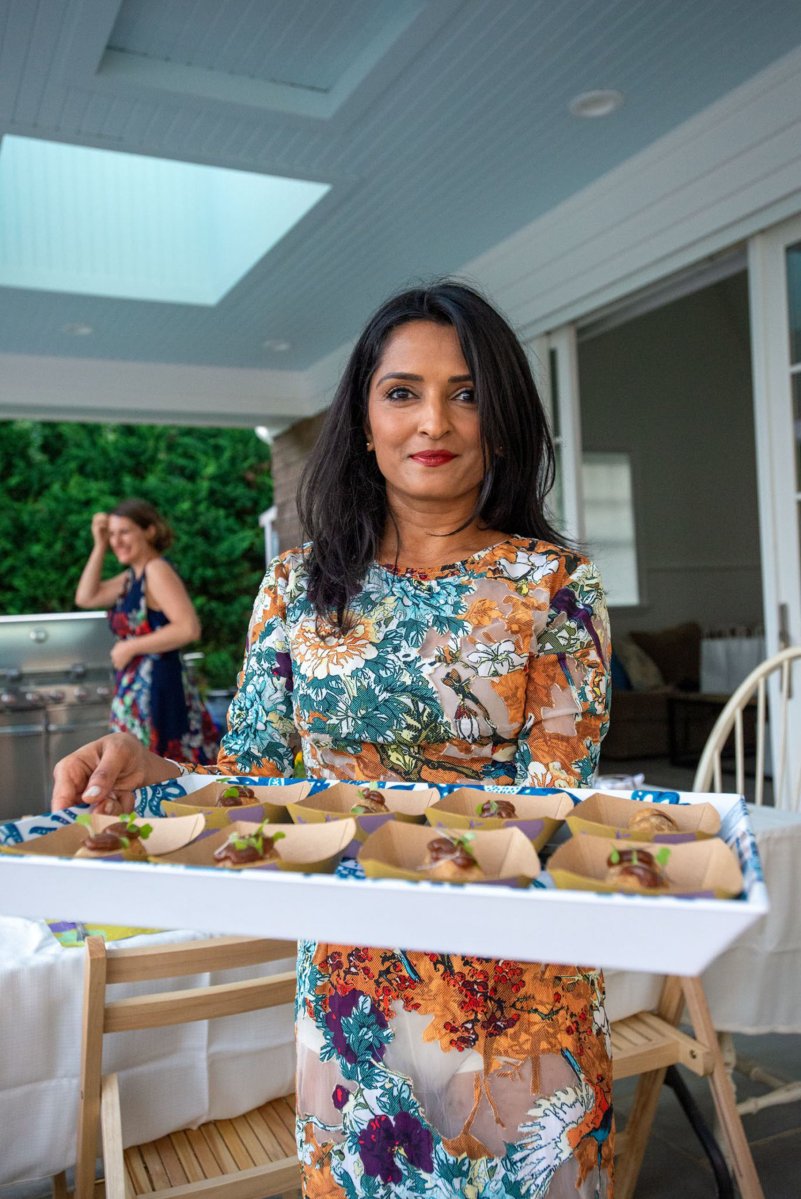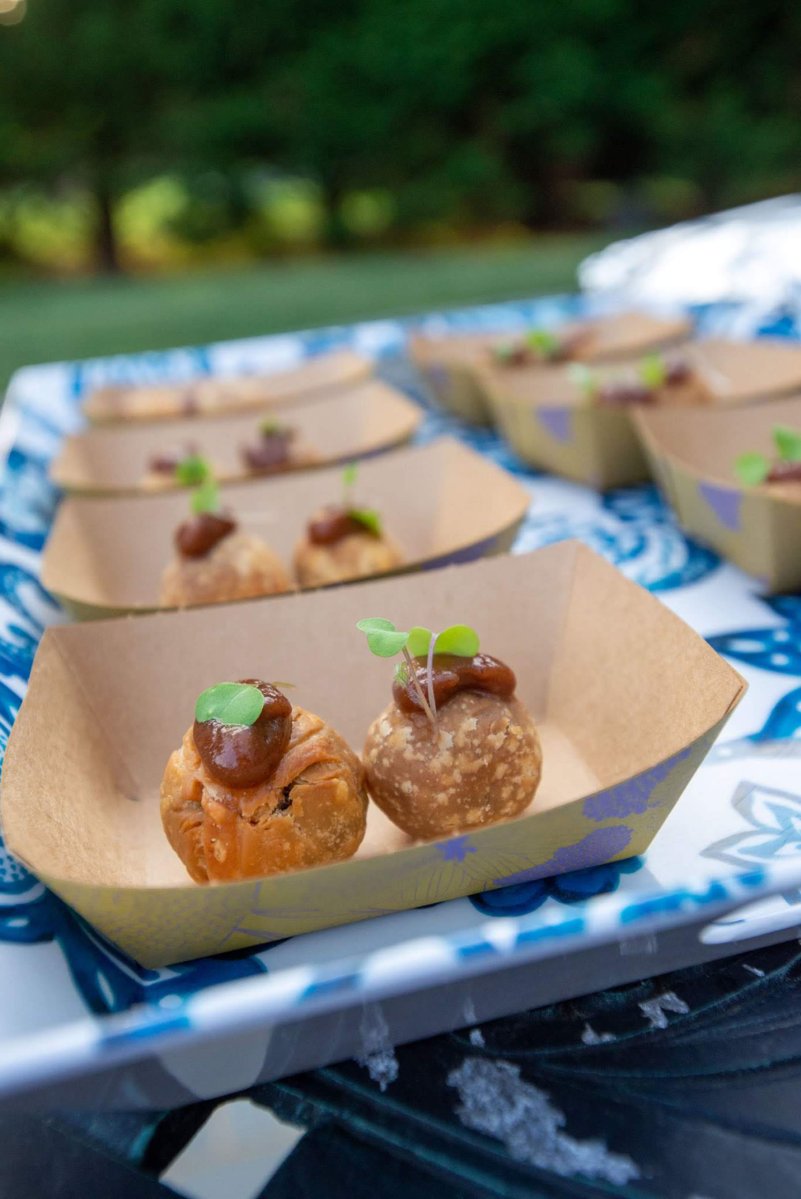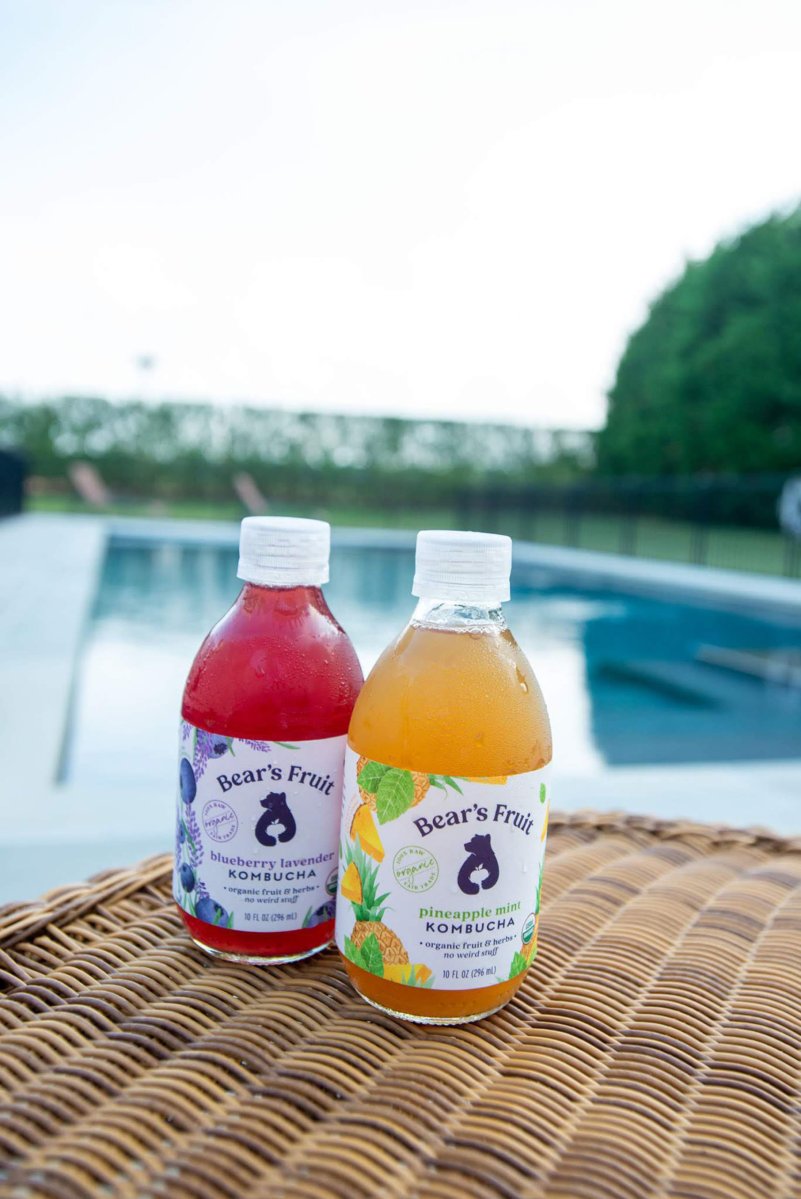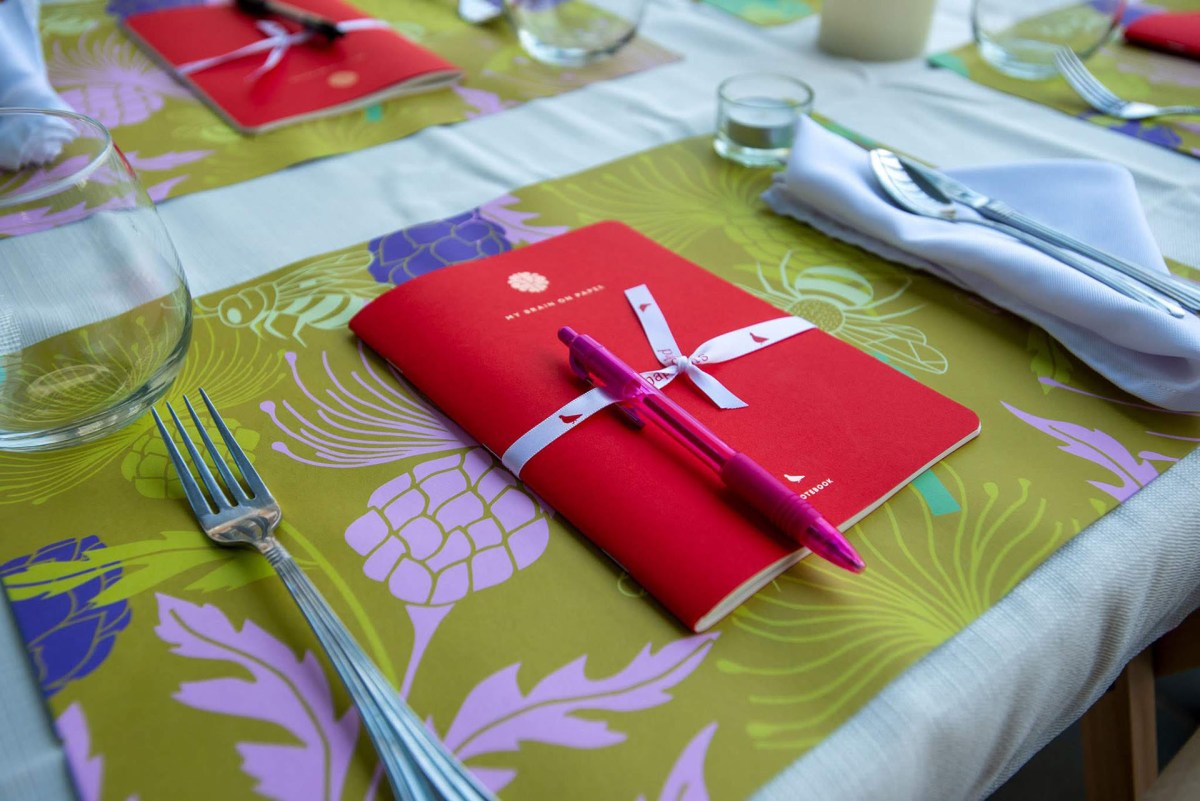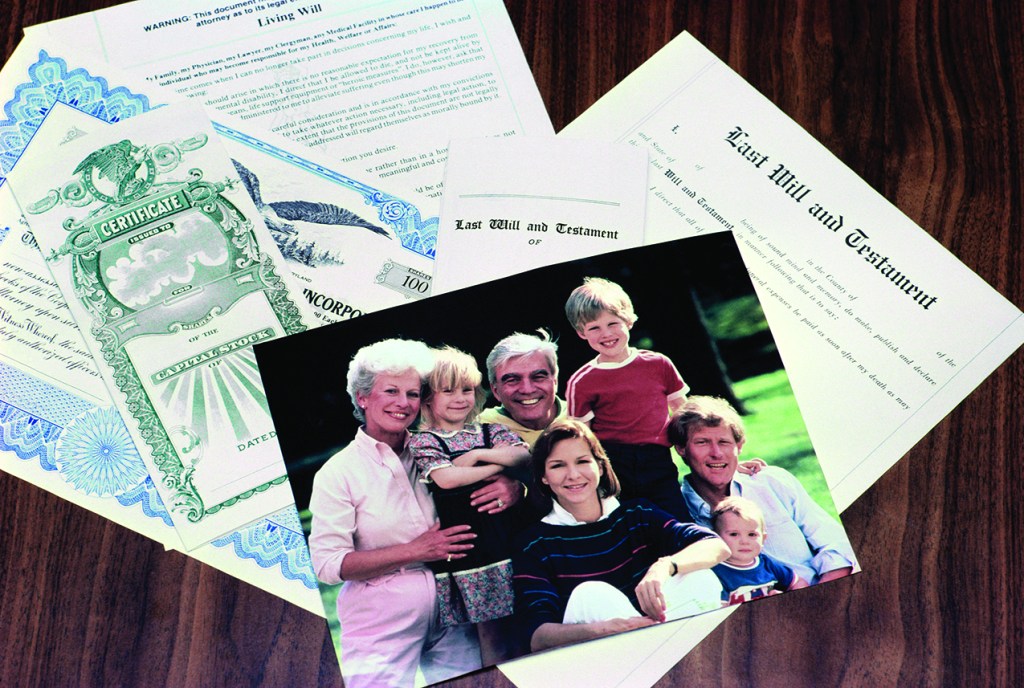Palak Patel Tells Her Story With Food
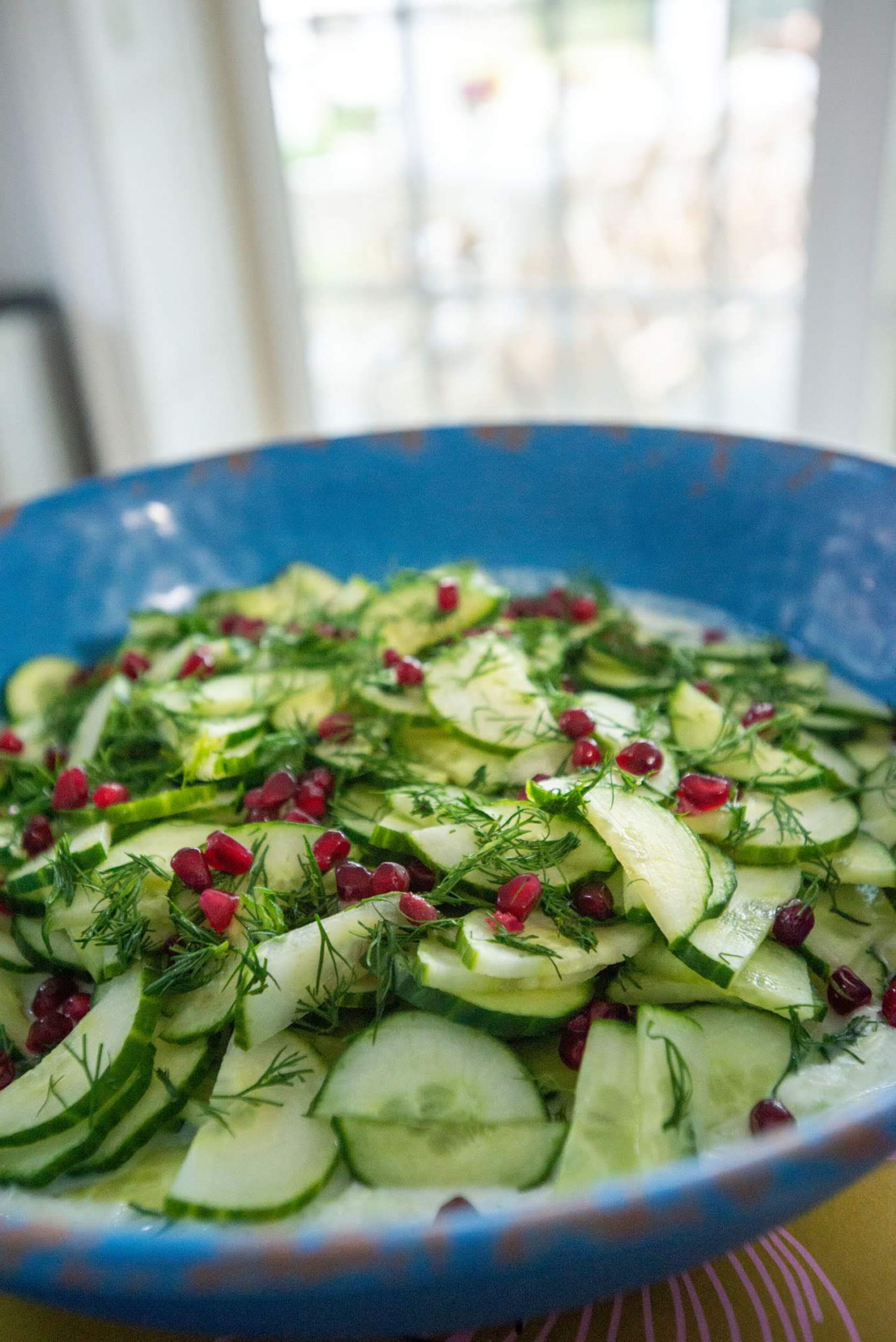
The sky is cotton-candy pink when I pull up to the potato farm on Scuttle Hole Road in Water Mill. When people hear you’re a food writer, they assume all manner of perks, but the brutal reality of any food writing — any kind of writing, really — is that the actual work of it takes place in solitary confinement, at a computer, in pajamas, far from the rolling hills and Hamptons light that make dinner parties in July so magical. And then, every once in a while, the heavens open, and you think: Oh, right. This is why.
I had come to the home of Christine Prydatko of Simple Vodka in Water Mill for dinner with Palak Patel, a powerhouse (and fellow French Culinary Institute alumna) who won “Chopped,” who beat Bobby Flay, and who appeared on too many television shows to count. The dinner, titled “Indian Summer,” was hosted by Simple and The Independent.
Her food is both delicate and forceful, both nostalgic and pensive, both expansive and familiar. Under an Edison bulb-lit pergola, where strolling diners clink foamy glasses of sparkling things, Palak tends to a grill nonchalantly. If she breaks a sweat, I don’t see it. While the lights change from soft white to heartthrob red, she presents indistinct, edible globes. Vegan empanadas, she says, but they are so much more: Puff pastry shrouding sweet peas and daubed with date and tamarind sauce. Salty, crunchy, sweet. Should a snack be anything else?
Food appears family-style (the way I prefer it, in case you were wondering), and, since we’re in the thick of the greatest season for eating, it is color at its finest. If winter feels like an homage to beige and brown, July is green and yellow and red and purple and orange, a symphony of nature’s braggadocio.
Before us are potatoes dusted with coriander powder and chives, a “lightened potato salad”; a traditional Indian raita — a cooling condiment — made with cucumber, banana, pomegranate, and “a secret ingredient from my mother”; spoon-soft grilled eggplant, lashed with cumin, garam masala, habanero, shallot, and coriander; corn, charred on an open fire and composed in a salad with pickled onions; and the most perfectly seared halibut you have ever seen, served with a delicate mustard dressing.
Ingredients come from Balsam Farms in Amagansett, where, our chef confesses, she stood at the farm stand, hoarding corn in the morning sun. We are here, in the Hamptons, but somehow transported, to wherever Palak Patel is when she’s making this. We are on her journey now. This is her trip, and we are just along for the ride. She cooks her memories, in the same way that I write mine. Her history is on display, right here, for anyone who wants to see it. Here is a whisper of her grandmother, of her mother. Here is the vision of her childhood that she carries with her now.
Her food is her, she says. She says this without saying it at all.
The cotton candy sky fades to indigo, and then an inky black. A custard appears, and my willpower dissolves. With a heat wave on the horizon, we are all susceptible to the delicious impulses set forth by Palak, our gracious host. I don’t ask for seconds, but maybe I should.
The writer Ruthie Ackerman conducts a memory activity, urging us gluttonous eaters to recall our first-ever food memories. Palak tells us about a time in India, with stalls of street foods. In the moment, I can’t write down a single thing about my first food memory, but later, in the dark of my bedroom, I am haunted by a Cookie Monster cake at my fourth birthday, and of a memory of my father that I can’t shake. That cake was nothing to speak of, but everything about that moment is gone now — the sugary cake, the Colorado sunshine, my father. I can see why Palak telescopes the past through food, why it’s so important. It’s a window one can climb into, a ladder back in time. Eventually, we all have to go home.
The potato field is dark and otherworldly, shrouded. When I pull up this memory in five or 10 or 15 years, what will I recall? Will it be the piquant onions, crunching through the sweet-singed corn? The last gasp of coriander on a July evening? How will I rewrite the memory? How will food hold time?
